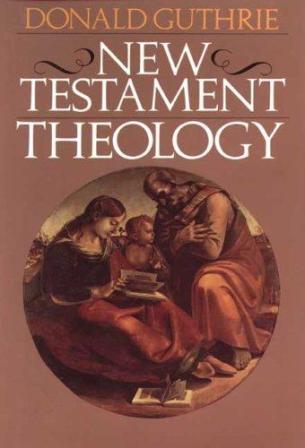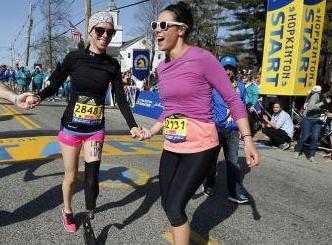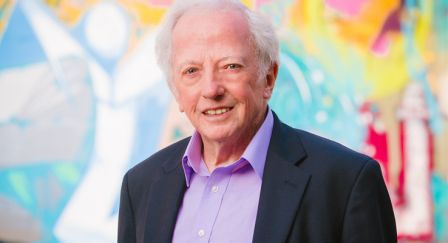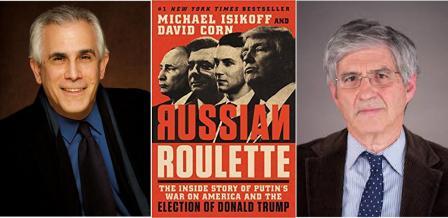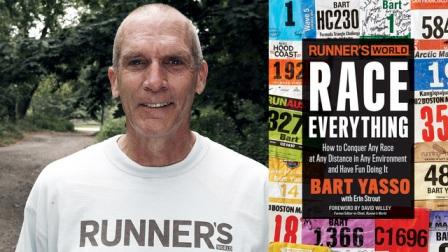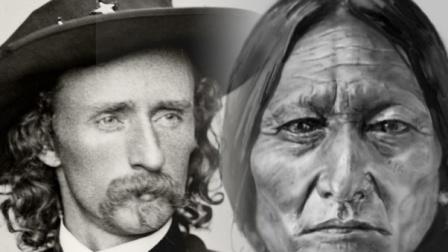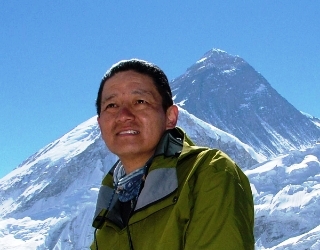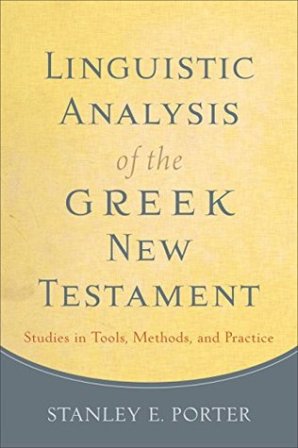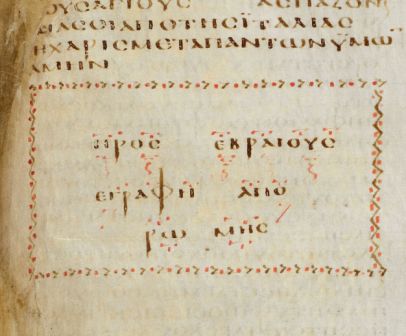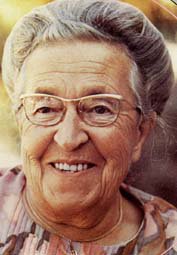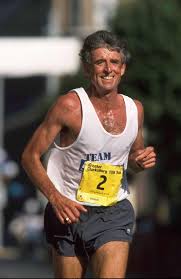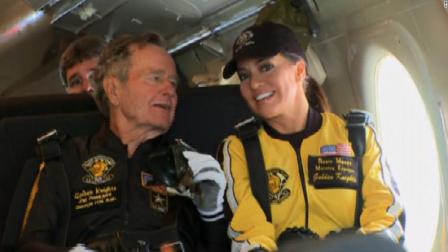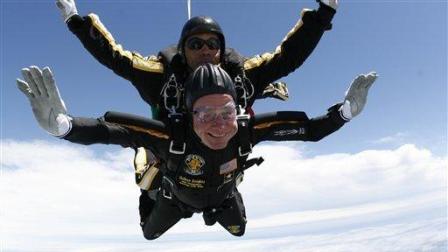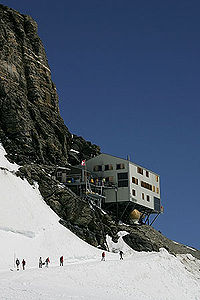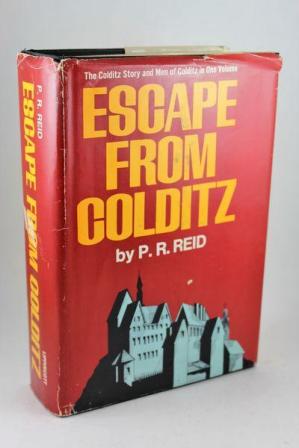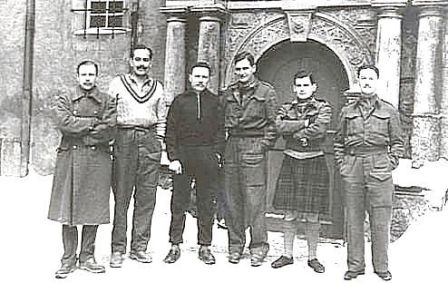October-June 2017 Blog Archives
|
|
|
||||||||
|
December 2018 Blog Archives Monday, December 31 1:16 PM This and that .... 1) The epitome of contentment.
2) Sure hope my classes aren't this boring.
3) Sweet.
4) On the last day of December I review my stats for the year.
I must confess I'm so grateful to God for this year's results. My total mileage in 2018 (1,512 miles) is up from 2017 (1,139 miles) and 2016 (1,022 miles). That includes the run I did today in the rain. This had to be about the perfect year in terms of exercise. No, it wasn't easy. Life wasn't meant to be easy. There was plenty of hardship. I let myself down many times. But each time I fought back. I'm still working on this running thing and probably always will. Finding the right balance between exercise and rest takes discipline. I know one thing, however. If I'm to climb the Alps again this summer, I had better be well trained. Bottom line: Only God knows the future. But that doesn't mean we shouldn't exercise wisdom. I'm not afraid to back off if and when I need to. Moderation is the key to all of life but it's so easy to talk about and so hard to do. Right now, though, I'm content to be a mediocre runner. Keep on keeping on everyone (and I will too). 7:36 AM Hello, blog family. Hope your Christmas went well. Mine was great, though I missed Becky. Being with family made all the difference in the world. Imagine for a moment that you're a small drop of water in a very large river. You've been bubbling along innocently when lo and behold you go over a gigantic waterfall and the massive river is suddenly on top of you, pounding you under. That's what these past 5 years have been like for me. And that's why spending so much time with family these last 2 weeks was so important. I feel like I've finally transitioned into the slow quiet at the bottom of the waterfall. "I will never forget this awful time as I grieve over my loss," wrote Jeremiah (Lam. 3:20). "Yet I still dare to hope when I remember this: The faithful love of the Lord never ends. His mercies never cease. Great is His faithfulness!" When I married Becky 42 years ago, I vowed to love her no matter what. I promised to "have and to hold till death do us part." She pledged the same thing to me. We didn't know what would lie ahead for us. But we knew that our vows would bridge the bad times, the lean times, the ill times until we were parted in death. If you've ever wanted to know why God created the institution of marriage, a look into the eyes of a widower will give you a pretty good idea. How I look forward to the day when I will embrace her again and together we will celebrate the goodness of the God who redeemed us. Because of Christmas (and Good Friday and Easter), I will see Becky again, and I'll never have to say goodbye again. I know that she is happy where she is, and I'd never want her back again. She is now healed, and every last tear has been wiped from her eyes. Yet some days I'd give anything to be able to talk with her again. I suppose God knows how I'm feeling. After all, Christmas is not just about a baby laid in a feeding trough. It is the Heavenly Father saying goodbye to His Son. So, until I see Jesus face to face, I must accept what I cannot change and be content with what I do have (which is plenty). As 2019 dawns, I've written down a few thoughts. They're not really New Year's resolutions. Maybe we could just call them "un-resolutions." 1) I will talk less about what it means to live as an obedient follower of Christ and by God's grace will actually start living like one. 2) I will not expect perfection. When I fail, I will confess my sins to God, remembering the words of C. S. Lewis: "You must ask for God's help. Even when you have done so, it may seem to you for a very long time that no help, or less help than you need, is being given. Never mind. After each failure, ask forgiveness, pick yourself up, and try again." 3) I will make every effort to keep my writings simple. (Albert Einstein: "Keep everything as simple as possible, without being too simple.") 4) I will make sure that when I teach or preach from my Greek New Testament, no one knows I'm doing so. 5) I will be more understanding toward others, especially those who don't see things like I do. 6) When it comes to giving parenting advice to my children (who are now raising their own kids), I'm going to zip my lips, knowing that nobody cares as much about raising good kids as their own parents. At the same time, I will not confuse grandchildren with angels. 7) By God's grace, I'm going to do something really crazy this year, like climb the Pollux or Castor in the Swiss Alps. 8) As much as I love and appreciate them, I will not abdicate my personal responsibility for global evangelism to professional missionaries. 9) Like Jabez of old (1 Chron. 4:9-10), I will ask God for bigger challenges and greater opportunities to serve Him in 2019, believing that I will get them. 10) I will do at least one magnanimous act every day. 11) I will say "I love you" to my family members more often. 12) I will pass out 100 free copies of Will You Join the Cause of Global Missions? this year. As the saying goes, it only takes a spark to get a fire going. 13) I will not be anything but myself. I will enjoy my own special God-given personality and temperament. I will feel free to weep, to express my fears and doubts, to laugh until I cry. I will not wear a mask and try to appear controlled when I am freaking out. God made me -- down to the last scar. 14) I will seek out deeper friendships. (Dolly Madison: "Friendship doubles our joy and halves our grief.") Of course, friends are humans too and will let you down from time to time. That's just part of life. And it's always okay to let old friendships go if you feel you have to. 15) I will be more generous in 2019 than I was in 2018. (John Wesley: "Make all you can, save all you can, and give all you can.") Okay, that's all I've got by way of un-resolutions. Hope they give you some food for thought as you begin 2019. Heb. 12:1-2 (The Message) says: "We'd better get on with it. Strip down, start running -- and never quit! No extra fat, no parasitic sins. Keep your eyes on Jesus, who both began and finished this race we're in." That's it in a nutshell. Happy Newness Year (Rom. 6:4)! Dave 6:55 AM Quote of the day (Conrad Grebel):
This was Grebel's response when he was asked where he found his new view of the Christian church. I love Zwingli and have studied his life. I've profited from his writings. I've been to his birthplace and the battlefield where he died in Switzerland. But the Anabaptists were right: The clear teaching of the New Testament was more important than the teachings of their earthly teacher. Please, fellow students of the Word, let's never put the writings of our favorite Bible scholars above the Bible itself. 6:04 AM So here are the hymns I listened to before my feet touched the floor this morning.
Renewal in this world begins in our own hearts. Jesus was clear about this. We need to stare at the plank in our own eyes before we strain at the splinters in the eyes of others.
As a chorister I stand in awe of this rendition. It does not get any better than this in choral music. What Bach does here is simply staggering. It's the most beautiful hymn arrangement harmonized by Bach, ever. Für mich ist dieses alte Kirchenlied das tiefgreifenste das in der deutscher Sprache existiert. Ineffably glorious! You should learn German if for no other reason than to be able to listen to this piece in the original.
I know I'm showing my bias here, but many modern praise choruses bear little of the spiritual depth of these old hymns and, maybe even more importantly, their texts. Can they be revived? Hope so! P. S. Speaking of hymns, here's a rendering of He Is Lord in Koine Greek. Both words and music are fabulous (though the word "Christ" was left out of the last stanza). For more songs and hymns in Koine Greek, go here. Sunday, December 30 8:18 AM Kevin Brown (a good pastor-friend who's been to Ethiopia with me many times) writes Why We Go? Talk about partnering in the Gospel! 7:15 AM I simply can't get enough of Guthrie's New Testament Theology. Since you have nothing better to do on a Sunday morning (right?), can I tell you what he wrote about the Great Commission on pages 715-716?
Read this again:
Ironically, when I was in college I attended a church that practically ignored the Gospels. Sermons were mostly from the epistles, except maybe at Christmas. The Gospels, I guess, were considered merely as simple stories, whereas the epistles -- now there you'll find some meat! The Anabaptists thought otherwise. They recognized that the core of the Gospel was to be found, well, in the Gospels and in the teaching of Jesus Himself. Hence obedience to the Great Commission was a core tenet of their theology and praxis. In fact, the Great Commission was the most quoted text by the non-resistance Anabaptists. So much did they take Jesus' words seriously that they were ready to die for their convictions (but never prepared to kill for them). Guthrie states (p. 716):
So what does a healthy Jesus community look like? We prioritize the world, not the church. We recognize gladly that "the gathering exists for the going." We partner with local and international ministries that are grounded in other local churches. Mission trips prioritize long-term partnerships. A healthy church begins with its leaders who are eager to live simple lives on mission, loving both God and their neighbors. They assemble the church not only for renewal and teaching but to equip all of God's people to be on mission 24/7. They say, in essence, "You have the Bible and the Holy Spirit. You have a heart full of Jesus. There is your neighbor. You are capable of ministry without us telling you how to do everything." I yearn for the day when evangelism will be seen not so much as the function of the preacher so much as of the living community. There is unquestionably a movement in this direction among the students I'm privileged to serve. Instead of expecting people to come to church, they are being driven back to how the first followers of Jesus spread the Gospel among the lost by operating on their turf and not ours. These young Christians are, in short, acting like the incarnational Jesus. Evangelism always springs from personal involvement and costly self-giving. What a joy it is to participate in mobilizing the church for the cause of the Gospel. Saturday, December 29 7:10 PM I went a-cycling today in Farmville and planned to do about 20 miles but the day was so beautiful that I just couldn't stop until I had completed a full marathon. There's no magic in getting motivated to do a long bike or a long run. Ya just do it. Here was my bike today.
There's nothing like biking the High Bridge Trail. And to see so many people out biking or running or even horseback riding, well, the day was gorgeous so I'm not surprised. The key is not to watch your Garmin the whole time, because if you do that, the miles drag on and on. Just relax and enjoy the ride. That will make the whole experience easier (note that I did not say "easy"). Tonight I'm reading Donald Guthrie's New Testament Theology. He was a super gifted writer. It's a tough book to get through but very rewarding. This is one of the hugest books I have. Reading it helps me learn theology and weight train at the same time. How cool is that? Have fun wherever you are! 7:24 AM I suspect that some of you are interested in questions of textual transmission and Bible translation. So let's get the show on the road. Here's a pic of my master's thesis.
I wrote it in 1980 when I was a student at Talbot. At that time, a thesis was optional in the M.Div. program at Talbot. Previously, all M.Div. students were required to write a master's thesis. Nobody seemed happy with that arrangement. Many students were disinclined to write a thesis, and most professors felt overworked by having to read umpteen theses every May. A happy medium was arrived at, I guess, when the seminary made the thesis optional. Of course, I opted to write one since I knew I wanted to pursue a doctorate in New Testament and had, in fact, already been accepted at Basel. My thesis was a fresh look at the textual variant in Eph. 1:1. I dare say that, when I am dead and gone, this work may seem an insignificant part of my career, but at the time it was the longest paper I had written. In fact, I published a condensed version of my thesis in what was at the time an esteemed publication called the Grace Theological Journal. (I will never forget getting the page proofs in Basel. You'd probably be excited too if you saw the proofs of your first ever published essay.) In my thesis I concluded, based mostly on the external evidence, that the disputed words "in Ephesus" (Greek: en Ephesō) were original. My thesis advisor was none too happy with that judgment, but what can I say -- that's where the evidence had led me. Here I'd like to talk about one of the appendices found in the thesis, namely the question of how to translate Eph. 1:1 without a place designation.
I concluded the following:
Thus Joachim Gnilka, in his German commentary (Der Epheserbrief, p. 2), can write:
Hence my conclusion:
Textual criticism is in my blood. I think it has been ever since I made the discovery in my life, back in the 1970s, that many places of interpretation depended on the satisfactory solution to questions of the text. What fun it was to study the text of Eph. 1:1! Textual criticism, too, had a real role to play in several of my subsequent publications. Yes indeed, the bottom half of our Greek New Testaments can be immensely attractive, and even in my beginning Greek classes I include a lecture on textual criticism and have my students read a little treatise I wrote on the subject. "Textual criticism matters" is one of the emphases in my teaching, and I trust in yours! Eph. 1:1-3 in p46 (ca. 175-225). Note the absence of a place designation.
5:20 AM How were foot races conducted in the ancient world? Glad you asked.
As you run your race, what are your personal goals for this coming year? Yeah, I know how easy it is to overcommit. I'm pretty much an expert at that. So here's what you can do: Pick goals you are super-excited about. And be sure to write them down. Once I get an idea in my head, I write it down. (That's the difference between a goal and a wish.) I love the fact that goals need to be challenging. Am I crazy? Or just goal-oriented? Or both? Believe it not, the more I age, the more goals I set for myself. Individual goals. Family goals. Writing goals. Travel goals. I try to be realistic. People tend to overestimate what they can accomplish in a short period of time. Still, I love writing down my goals and reviewing them every so often (like about once a week, like on Monday mornings). So have you written down your goals for 2019? Visualize exactly the person God wants you to be. Your success depends on complete dependence on Him, and then following through with His plans for you. Friday, December 28 6:10 PM More often than not, I'm sitting down reading. These were my 10 favorite non-religious books of 2018.
Boston Strong by Casey Sherman and Dave Wedge. We all know about the Boston Marathon Bombing. This is the story of how the city recovered after the attack and how its citizens came together as perhaps never before. Two women who lost limbs in the 2013 bombing finish the Boston Marathon in 2016.
Marathon: A Novel by Hal Hidgon. Not to be confused with Marathon Man, whose movie version creeped me out. I'm a voracious reader of anything written by marathoner Hal Higdon, but this is the first novel he wrote and boy was it a doozy. You will never guess how it ends.
Russian Roulette by Michael Isikoff and David Corn. Guess what? I do read about politics, even if I don't like to blog about the subject.
Race Everything by Bart Yasso. Bart has run in every major marathon in the U.S. He's built his life around the sport, not least as "chief running officer" at Runner's World magazine. His 3 most memorable tips are: (1) Start slowly, (2) build endurance, and (3) make it fun.
The Last Stand: Custer, Sitting Bull, and the Battle of the Little Big Horn by Nathaniel Philbrick. I love me some historical non-fiction, and this book is as good as it gets. Besides, who can ever forget their first visit to that historic battlefield?
Pacific: Silicon Chips and Surfboards, Coral Reefs and Atom Bombs, Brutal Dictators, Fading Empires, and the Coming Collision of the World's Superpowers by Simon Winchester. The world's longest book title has 1,022 words in it. This book must come in second place. Despite its garrulousness, I loved this book, mainly because I grew up in the middle of the Pacific Ocean.
Columbus: The Four Voyages 1492-1504 by Laurence Bergreen. Ah, the man who went looking for China and discovered "India" instead, thus plotting a new course for the future. Since I don't sail anymore, the next best thing is to read about it.
Touching My Father's Soul by Jamling Tenzing Norgay. I give this book two thumbs up. Jamling is the son of Tenzing Norgay who, along with Sir Edmund Hillary, were the first climbers to summit Mount Everest in 1953, a year after I was born. The book's a lesson in perseverance and humility, two worthy traits we can all strive to emulate.
Color Me Vegan by Colleen Patrick-Gourdeau. I'm not a vegan, but I am interested in eating cleaner than I currently do. You can find a lot of healthy recipes in this book. If you follow a plant-based diet, leave a comment below and share with us a recipe or two. (Actually, I don't have comments so I guess that won't work.)
Heaven and Hell: My Life in the Eagles by Don Felder (1974-2001). I love reading books about rock bands, and this one tops the list because the Eagles were, well, maybe the best rock band ever produced in the States (tied with the Beach Boys). Felder is best known for having written the music to Hotel California, a song we'll be listening to in 500 years.
So there you have it. The ultimate list of must-read books of 2018. Well, at least my version of it. What were your favorite reads of 2018? 7:22 AM Ward Powers has written a fine introduction to New Testament Greek. He introduces the middle voice on p. 71 by writing:
In addition:
Powers emphasizes that these two usages can "shade into each other," though many examples can be given where two distinct usages are obvious, as with:
I find it interesting that the example Powers focuses on in his ensuing discussion is the verb phulasso. As he puts it, "Thus Matthew and Luke use the active voice of phulasso in a passage where it is appropriate for the middle to be used, whereas in this passage Mark does use the middle:
This was precisely the evidence I used when I sought to respond to Robert Stein's argument for Markan Priority based on this very construction. Stein, however, chose to take the evidence in a different direction. He argued that Mark used an incorrect form of the verb phulasso (the middle), and that this incorrect form was corrected by both Matthew and Luke into the active voice. I argued, in response, that I did not think there was anything inherently incorrect about Mark's use of the middle here, especially when you take into consideration the use of the middle voice of phulasso in the LXX in contexts dealing with keeping the commandments of God. (See Some Dissenting Notes on R. Stein's The Synoptic Problem and Markan "Errors.") This is merely a small slice of the relevance of linguistic study to the interpretation of New Testament texts. Lately it's become clear to me that the question concerning correctness and incorrectness in language is not as much a linguistic one as it is a sociolinguistic one. In other words, it is people who determine what is correct and incorrect in language, not textbooks. In a sense, then, if everybody says "It's me," then this construction is correct. (One "should" say "It is I.") I have the happiest memories of debating this issue with my fellow students while in Basel, as even then I had begun to question the Markan Priority Hypothesis and especially the so-called linguistic arguments for the posteriority of Matthew and Luke. I determined then and there that one day I would study the matter in greater detail, since my own teachers at Talbot had all espoused the consensus view regarding Synoptic origins. It was fascinating contrasting the arguments put forward by Stein and others with the statements of the church fathers. What struck me most, however, was the need to rethink the primary linguistic data in the texts themselves. I must also mention the work of William Farmer, who once invited me to spend a week in Dallas with his working group on the Synoptic Problem. It is a remarkable privilege, this process of thinking and rethinking one's views about this and that. My task as a Greek teacher now is not to try and convince my students that I am right and someone else is wrong but rather to equip them with a tool (Greek) that will help them all become better Berean Christians. 6:24 AM This morning I updated my essay Ten Best Books for Studying New Testament Greek. Added were:
This latter work is especially important. For one thing, Porter's presentation is brilliant and the material magnificently packaged. He offers a refresher on essentials that will bring into focus disparate elements of linguistics that readers may or may not have partially grasped previously. One example is his treatment of the participle "going" in the Great Commission. "The Great Commission is developed around a relatively straightforward grammatical construction in Matthew 28:19-20...." (p. 252). Porter emphasizes that the idea of going, "rather than being grammatically prominent, is the background to the primary clause" (p. 253). The translation logically follows: "Going, therefore, make disciples of all the nations...." This rendering can, of course, be challenged, but no one should deny that it is a possibility. You will want to read Porter's chapter on the subject to know why. I could mention so much more:
Of course, there is much more to Greek linguistics than all this. Nevertheless, the foundational importance of linguistics to our discipline cannot be doubted.
I've been privileged to know Stan Porter for my entire academic career. He will be the opening speaker at our upcoming linguistics conference in April. Having been involved in organizing three previous conferences on campus, I anticipate that this will be the best one yet. P.S. My Power Point on Matt. 28:19-20 may be found here. For a rebuttal (yes, Stan and I may be wrong!), see the excellent essay by my friend and colleague Ben Merkle in the latest issue of the Southeastern Theological Review. Thursday, December 27 5:50 PM Tonight I'm putting the finishing touches on my Greek 1 class that begins next Wednesday. This is maybe the thousandth time I've taught J-term Greek and it's always been a great class. For students who are self-starters, intensives are a good way to get ahead on one's degree program. When the spring semester begins mid-January, I'm scheduled to teach 4 classes: Two sections of Greek 1, NT 1, and Greek Exegesis of Philippians during spring break. Then I'll teach 6 weeks of Greek 1-2 during summer school. Several of these classes are "overloads" which I like to teach because they keep me busy even though they do involve a lot of travel to and from the farm. If there's one thing I've learned about teaching Greek throughout the years, it's that all learning is self-learning. We listen selectively, we remember selectively, we retain selectively. Another way of putting this is: Learning is not method-dependent. A person can learn how to read Greek regardless of the method. There's simply no single method of teaching Greek that works for everyone. On the other hand, learning can take place no matter what method is used -- the traditional approach, the living language approach, or a combination of the two. No method can guarantee learning. The same holds true for textbooks and teachers. This means that there's no magic "key" to Greek pedagogy. There aren't any "five easy steps." No gimmick works to ensure that our students "get it." Without the motivation to acquire and retain a language, nothing of lasting value ever happens. The only reason I've maintained my Greek or my German (or whatever other language) is because I have an intrinsic desire -- a God-given passion even -- for languages. Sometimes people will say, "Well, languages come easy for you, right?" Not at all. I have no special language aptitude. Language acquisition is hard work for me. Always has been. But it has been joyful work, so joyful in fact that it has never really seemed like work at all. I take no credit for this. God is the one who grants us both the desire and ability to do anything (Phil. 2:13). So if you have learned a foreign language, thank God for it. It is a gift from Him. If you love something, if you're passionate about what you're doing, you'll get it done. It's called perseverance. "Find what you love to do and you'll never work a day in your life." That has been true for me. But it is the blessing of God. Yes, language acquisition comes at a price. But only the Lord can put a love in your heart for Greek. If you discover such a passion residing deep in your heart, thank Him for it. Of course, if your passion lies elsewhere, thank Him for that too.
8:30 AM My view early this morning. I never tire of it.
7:52 AM Five years ago Becky and I were still together. I sometimes ask myself: "What did we learn in 37 years of married life together?" Here are a few random answers to that question. I hope these reflections help you in your own marriage. 1) Contentment. "There is great gain in godliness with contentment," wrote Paul (1 Tim. 6:6). Becky and I knew what contentment was. We had learned to live with things we knew we couldn't change. We had learned that no matter how hard we tried, some relationships were never going to be healed. We had learned not to squabble over little things. We had learned not to expect too much from life. Contentment does not negate a commitment to caring. We cared about people, a lot. But life does have its limits. There are only so many things you can do, so many places you can travel to, so many people you can help. And contented people are okay with that. 2) Discernment. "Be very careful how you live -- not as unwise but as wise, making the most of every opportunity because the days are evil" (Eph. 5:15-16). Five years ago Becky and I were 60 and 61 respectively. People over 60 don't believe in "killing time." They realize that life flies by. Time is a precious possession. Becky and I spent much time in prayer, seeking to discover God's will for our time, energy, and resources. Discernment led us to let go of certain pursuits and ministries. But it also led us in new directions in our work for Jesus. Both of us felt that even greater demands awaited us in the Lord's service. We were working harder than ever for the kingdom. We had learned to work wiser and not only harder. We rarely felt nostalgia for days gone by. Life needed to be lived in the "now." Wrote William Barclay, "The fault of age is that it has come to a stage when it prefers things as they are." What a shame. Jesus was always forward-looking. And that's how Becky and I wanted to spend the rest of our married life together. 3) Faith. I love Acts 2:17: "Your young men shall see visions, and your old men shall dream dreams." As Becky and I entered the winter of our married life together, we continued to expand our horizons. We felt that our last years could be our best years -- a grace-filled period in which we leveraged our wisdom and experience for the Gospel. Though we both keenly sensed our heavenly citizenship, we knew we were here on earth with a heavy responsibility to return the gifts we had received. One of Becky's final dreams was to help a ministry in India establish a school that would make their ministry self-supporting and less dependent on funds from the West. We were always looking for new directions to stretch our faith. Growing older was simply a new leg on life's journey. We knew that God still had work for us to do if we only had the eyes of faith to see it. 4) Vulnerability. "The Lord said to me, "My grace is sufficient, because My power is made perfect in weakness '" (2 Cor. 12:9). Isn't there a touch of the Savior in being vulnerable? The older Becky and I got, the more committed we became to transparency, both in our writings and whenever we counseled with people. Our weaknesses and struggles could become places of healing and power for others. Have you noticed? There are some people you know who seem to be able to rebound from one loss after the other. They seem to have a deeper acceptance of life that carries them through life's sorrows. They don't have fewer problems than the rest of us. But they have a gusto for life that amazes you. Becky and I wanted to be like that. We shared honestly with others so that maybe they could learn how to rebound from their losses. Becky's book My Life Story is a reminder that she experienced pain in her journey. Scars are road maps that tell our life stories. What is important is what we do with those scars. Becky was a person who made even the bad things count for Christ. 5) Acceptance. About a year before Becky died we both came to the realization that we would not grow old together, that God was calling one of us Home to be with Him. We thought we had perhaps 12 months to say our goodbyes. We would often sit on the front porch recalling earlier days, memories of life together in California or Switzerland or Ethiopia. At other times we would sit there without saying a word, carefree and happy, old in body but young in spirit. We could not turn back the clock of years, but we could relish His Presence and anticipate a future Easter. In his book How We Die, Sherwin Nuland says the aged and diseased "do not succumb to disease -- they implode their way into eternity." I smile whenever I read that, because that's exactly how Becky entered heaven. She died leaning forward. For her, entering eternity was merely the next crazy venture that God had in store for her. I want my final goodbye on this earth to be like that. I want it to come with a blessing -- and a nudge in the direction of heaven. "Goodbyes are part of every single day," wrote Joyce Rupp.
Becky lived her last chapter with amazing courage and love. She never wanted to be the object of pity. She left a closet-full of unfinished projects and to-do lists, but I don't worry about that now. I didn't choose to say goodbye to Becky Lynn Lapsley Black. We had much work for the kingdom left to do together. But perhaps incompletion is itself a blessing. Perhaps it is a small closure that I need to accept. Possibly what is unfinished will remain unfinished. As John Milton put it so long ago, "God does not need man's work or his own gifts." One thing I do know, however. I know that on November 2, 2013, the God who began a good work in the life of Becky Black brought it to completion. If it is His will, God will carry through to completion all the acts and intentions that Becky left unaccomplished. And when I die, God will perfect what I leave imperfect. What I want now is to travel with grace over every new pathway, across every new threshold of life. Now, as I await the day when Becky and I will be reunited, I am aware that old things have already passed away, and all things are being made new. 6:48 AM I'm out of eggnog. Yes I'm whining. 6:40 AM Here are 21 indispensable writing tips. One of the best is: "When in doubt, cut it out." 6:15 AM Have you seen these two essays yet? In the first essay the author writes: "These subscriptions are included for each of the Pauline epistles (Hebrews included), but no such appendices accompany the General Epistles (James, 1-2 Peter, 1-2-3 John, Jude)." He then adds, "The inclusion of a subscription for Hebrews (and it lacks of an inscription) in the tradional text indicates that it was considered part of the Pauline corpus."
A lynchpin in my argument that Paul is the author of Hebrews lies in the fact that this letter always circulated as part of the Pauline Corpus. There are, in any case, many advantages in studying the Pauline letters as a collection of writings instead of simply as individual documents. The Pauline correspondence throbs with life and love, and I want to stimulate people to examine for themselves this remarkable record of relations between the greatest church planter the world has ever known and the communities he either founded or cared for. 6:04 AM Today I hope to get in another bike. Yesterday I managed to eke out a 5K run. My next big race isn't until February so the tendency is to become lazy about training. If all I had to do every day was train, that would be one thing. But I have a fulltime job plus a farm to take care of as well. And I'm sure my kids would like to see me once in a while. I'm grateful that my body allows me to do the ridiculous things I ask of it, but I supposedly do this for fun, and when it stops being fun I think you've gone too far with the sport. I guess what I'm trying to say is that I don't need to take myself or my races so seriously. Sometimes we need to focus on other activities. Walk the dog. Bottle feed a baby goat. Put together a plastic model with your grandson. Write an encouraging email. Learn a new language. Take up knitting. (I put that one in there to see if you're still reading.) If all else fails, take a long break from running if you don't find joy in the hobby anymore. After a hiatus you'll probably be ready to get back into it. But be sure to take care of burnout while its still in its infancy phase because it can only get worse if you don't deal with it. Remember: When it fails to be fun, there's no point in doing it. On the other hand, we all think the grass is greener "on the other side." Maybe it is and maybe it isn't. Probably it isn't. Take a good look around you. Life is pretty good, isn't it? It is for me. Focusing on what you have rather than on what you don't have is one of the best ways to keep yourself sane and happy and to appreciate God's blessings. Wednesday, December 26 6:58 AM Had a wonderful day yesterday Face-Timing with family and getting in a 10-mile bike. Otherwise I just gelled on the farm and bemoaned the inescapable fact that calories burned by running = calories consumed in eggnog, sweets, etc. But if you can't cheat at Christmas, when can you? While cycling I thought about 2018. It wasn't a perfect year by any means. But for every setback there were 10 blessings. You just have to know where to find them. I'm excited about what 2019 holds. Yesterday I purchased my plane tickets for Cincinnati (Flying Pig Marathon in May) and Hawai'i (surfing in August). This morning I've been rereading some of my blog posts from 2018. I blog because I want to remember every single detail of what transpired in my life during the year. Now, as I read back through my posts, I either laugh or squirm. I sort of suspect that nobody reads my blog but I love it. The left side of my brain keeps narrating my life journey and always will. I've come to realize that life is always in process. There's always more to come. Things are never finished. But if you commit yourself to enjoying the trip, there's a lot less stress. Yesterday National Review published its Top Ten Best Movies of 2018. I only saw two of them. (I must live under a rock.) But I agree with the author that the movie First Man deserves to be number one on the list. "It's what's going on in the background, and in Armstrong's psyche, that gives the film such resonance." Exactly. I must confess: I've always been enchanted by space. As a kid I used to look through our telescopes at the planets and constellations. (My favorite was Pleiades.) Neal Armstrong and Buzz Aldrin were household names. That's why watching a movie that chronicles man's first walk on the moon was so thrilling for me. That kind of dogged determination has always appealed to me. But the movie was about so much more than Apollo 11. It was the characters' personal lives that really spoke to me, especially the reunion of Armstrong and his wife at the end of the film.
The distance to the moon was matched only by the distance between husband and wife. Their marriage was far from perfect, but they seemed to accept that fact, as least in the movie. (Sadly, I learned later that they divorced after 38 years of marriage.) I guess perseverance is easier to talk about than to practice. The one thing First Man will do is get you thinking about your own relationships and what's holding you back from making them work. The apostle Paul was determined to keep on going instead of giving up. He kept his eye on the prize and was off and running, and he wasn't about to turn back. If you've never thought much about setting goals in your relationships, consider making time for that as you prepare for 2019. I know for me, I sometimes don't reach my goals either because I don't pursue them with enough passion or else I ditch the effort partway through. I guess that's why I enjoy the challenge of the marathon so much. I don't even come close to finishing first in my age division. In fact, thousands of other runners finish long before I do. That's what happened at the Marine Corps Marathon this year. Still, I won my race because I finished. I went the distance. When things get tough, you just regain your footing and take another step. So best wishes, my friends, not only in your future successes but in your future misfortunes and setbacks. May 2019 be extravagantly and outrageously joyful for you, even during the adverse times. For when we are weak, He is strong. Tuesday, December 25 7:10 AM Lord willing, my next surf-cation will be in August. (I've been doing this annually since Becky passed away.) Not all surfing trips to Hawaii are successes. The waves can be flat, or the weather can be too stormy to catch anything but slop. That said, surfers are the most optimistic people I've ever met. Even if the ocean is completely flat, as in snorkeling conditions, we'll sit on our boards and wait ... and wait ... and wait. Even if a wave never arrives, we still say we "surfed" that day. Who knows, maybe we should have waited just a little bit longer?
The world waited millennia for the Savior to arrive in the form of a baby boy. But the time had to be just right before the Father sent Him (Gal. 4:4). God works patiently. Patience is part of His character. So it's not surprising to read that the Holy Spirit produces the fruit of patience in our lives (Gal. 5:22). Jesus is coming back again. He promised us as much (John 14:2-3). But He never said when that date would be. Honestly, I can become a bit impatient waiting for Him. But He will return only when the time is right. In the meantime, I'm to bear the fruit of patience, enduring hardship and personal struggles without griping or rambling on about "the good old days." The Lord's brother James knew something about patience. "You see farmers do this all the time," he wrote, "waiting for their valuable crops to mature, patiently letting the rain do its slow but sure work. Be patient like that. Stay steady and strong" (James 5:7-8). Perhaps Christmas Day is a good time to ask God to help us practice patience. Take a few minutes to think about ways in which He's revealed His patience toward you. Perhaps knowing how patient God is with us will help us to make "allowances for each other's faults because of your love" (Eph. 4:12). Happy Christmas Day! May our Lord fill you with an abundance of hope, peace, and patience this day. Monday, December 24 6:20 PM Liebe deutchsprachige Leser, Heute Abend, als ich über Weihnachten und über den Frieden, den Jesus der Welt gibt, nachgedacht, habe ich das Thema "Auschwitz" gegoogelt, und hab' dieses Videoclip gefunden. Solch eine bewegende Geschichte!
Ich bin sehr sehr bewegt. Einfach unfassbar was dort passiert ist. Deiser Mann bekommt meinen größten Respekt. Was er erleben musste bricht mir das Herz. Ich hoffe, daß seine Geschichte und die der vielen anderen uns zum nachdenken anregt. Sowas darf sich einfach nie wiederholen. Übrigens hat die ehemalige Gefangene Corrie ten Boon uns bewiesen, daß die Vergebung möglich ist, aber nur durch Gottes Hilfe (siehe Corrie ten Boom on Forgiveness). Jesus Christus allein ist unser Frieden.
Frohe Weihnachten, und Frieden auf Erden! Dave P.S. To my English-speaking readers: This YouTube is called "Only the Dead Can Forgive." The interviewee is a survivor of Auschwitz. His story is very moving. I ended my German post with a reference to Corrie ten Boom, who barely survived the holocaust and whom I once heard speak in a Biola chapel service. Her testimony (see the link above) is a tribute to the power of the Gospel to change lives. My friend, if there are people in your life who've done you wrong, ask God to help you to forgive them during this Christmas season. I'll try and do the same. After all, that's one of the reasons Jesus came to this earth and died for us. 9:15 AM Only 18 weeks to go until our Greek linguistics conference. Before then, in the next issue of Filologia Neotestamentaria (now published by Herder) an essay by Stan Porter will appear that I'm sure everyone will be interested in.
Our conference will contribute to Greek studies only if it succeeds in stimulating informed discussion. To that end, I hope many of you will plan to attend. Today I'm having brunch with family and then doing a bike. My monthly totals this year look like this:
As for this month, I've gotten only 72 miles of training in so far. It's obvious that I do most of my training during the warmer months of summer. I'm already loving the thought of summer running again (shorts! tank tops!). I've raced a lot this year. Don't think I can keep up the pace in 2019. We'll see. It's important to remember that for most of my adult life I was an expert in non-running. Since then I've learned that running isn't only for the young and fit. For whatever reason(s), I continue to run. Make no mistake about it, I'm still very slow. But, thank God, I was there at the beginning and the end of every race I've registered for -- as the retired running shoes cluttering my bedroom floor attest. In 2018, I took yet another step by signing up for my first ultra. More than once during the race I felt like quitting, but 31 miles later I received the same finisher's medal that the winner got. Friend, forget how old you are. Forget how slow you've become. Just get outdoors and stay outdoors for the rest of your life. Do whatever you can to stay active, but always keep moving. If things get too hard, you can slow down but don't ever stop. Sermon over :-) Merry Christmas Eve! Sunday, December 23 5:02 PM Burying a newborn goat makes you think about death. Questions regarding the whys of this death are met with silence in the Bible. What we do know is that all of creation groans under the weight of its mortality. It's because of human disobedience that evil exists in the world, and so all of us will face the hurts of life. That's why I was so glad I attended church this morning with my daughter and her husband. Joel brought a wonderful message from Acts 3 in which I was reminded that, very soon now, there will be a new heaven and a new earth, a universe without a trace of death or weeping or suffering. God, as Joel reminded us in Acts 3, has promised us "times of refreshing."
Every tear will be dried, every sorrow assuaged. The future will be an age of refreshment. It will be like that carton of cold chocolate milk I'm handed after a marathon. All tragedy, all futility will be gone. This is why Jesus came to earth. "The Son of God appeared for this purpose, to destroy the works of the devil" (1 John 3:8). Jesus came to restore all that had been lost and corrupted and disfigured in the Fall. I think that's why this text spoke so clearly to me this morning. One day "the creation itself will be liberated from its bondage to decay" (Rom. 8:21). The entire creation, and you and I in fact, will be restored to what God intended it (and us) to be. Friend, I hope Christ returns very soon. It's not that I don't have any goals or ambitions left in my life. I do! I simply desire to see Christ face to face. I've grown weary of the daily battle with pride and loss and a million nagging habits. Above the din of life, my ear is cocked toward heaven, listening for that trumpet to sound. Until then, please dear God help me to make the most of every opportunity that lies in front of me at home, work, family, church, and every area of my life, whether physical, emotional, social, or spiritual. Allow me, O Lord, to be faithful within my present circumstances, using the abilities and gifts You have given me. Help me to go the distance and finish my race well. Because of Your promises, because I know that "times of refreshing" are coming, I can endure through every trial, temptation, and bout of discouragement. Thank you, Jesus of the Incarnation! The Christ of Christmas is the new and abundant life that surges into our lives. He knew that He had to visit our planet to make it possible for us to experience life in all its fullness. When we give Christ whatever little we have, He will take it and multiply it. 8:20 AM With a baby bottle in one hand and a baby goat in the other, it's easy to think about what took place at the incarnation. When God became man He didn't do so as a king, aloof and invincible. "He became a little baby thing/that made a woman cry" (George MacDonald). Christ took our nature and accepted our limitations, exposing Himself to our temptations and experiencing the full bitterness of our sorrows. He lived our life and died our death. A newborn goat can't rise to your heights. You must stoop to its depths. And that's precisely what Christmas -- our "Incarnation Festival" -- represents. Jesus became one of us without any loss of His own identity. He descended fully into our human reality. He who had been the Creator of the universe became a creature. He who threw the stars into space was now wrapped so tightly in swaddling clothes He couldn't even move His own arms. He who was the Word of God was now speechless except for the cries of a newborn infant. And He on whom all things depended was now dependent upon His earthly mother and father. Then, when He grew up and matured into manhood, He changed the rules of the game forever by insisting that He was the only way to God. And so He demanded from His followers their total allegiance and even promised them that such allegiance could cost them everything, even separation from their earthly families. The baby that was born to two Jews in a stinky barn eventually grew up to become my Savior and my Lord, and, I hope, yours too. Today churches will be filled to capacity with people who've come to hear the Christmas story again. I will be among them. But I must never forget that the baby grew up, and that today He does more than drool and coo. Saturday, December 22 7:52 PM Howdy yall! Today I was finally able to get in a 10 mile run in Farmville at a very comfortable pace.
Here's the outbound leg.
And the inbound.
Perfect weather, as you can see. I listened to sermons and meditated on Psalm 104 and its wonderful teaching about animals. As I said, I wasn't in any hurry. I mostly wanted to imbibe the atmosphere of being out in nature. Besides, slow is good. Especially in marathons, you have to go out slow. Your body needs at least 2-3 miles to warm up properly. If you go out too fast, you'll use up an inordinate amount of glycogen while accumulating lactic acid. Sure, it feels funny, with everybody passing you. You just need to get over your ego and run your race at your pace. Hey, at least I'm faster than everybody who won't get out there! Some Greek students study a mere 1-2 hours outside of class every week and are able to master the lesson that way. Other students need to take 5-8 hours to master the same material. The time doesn't matter. Mastery is what counts, that is, "mastery" to the best of your ability (and not someone else's). Make sense? What's the next big goal in your life that you're scared to death to do? 6:30 AM My Greek DVDs are heading to Millersville, PA today. Thanks to everyone who submitted their names for the drawing and, again, a very Merry Christmas to all! Friday, December 21 5:33 PM A huge "Thank you!" to my daughter for helping me deep clean the kitchen today and to her husband for trouble shooting a plumbing issue I've been having in the crawl space. I fed the kids their favorite -- sloppy joes.
Then we took care of these sweet guys.
Rachel took to bottle feeding like a bug to a rug.
Then it was off to feed the donks their daily carrot.
What an amazing and inspirational day. Remember: A winner for my DVDs will be drawn at random tomorrow morning so send in your name tonight. 6:34 AM Dear reader, I'm a very proud recipient of the UNC Department of Obstetrics and Gynecology Annual Report. The latest issue arrived yesterday in the mail.
I see it features the work of none other than my friend Vickie Bae-Jump.
Vickie is researching the possible connections between obesity, race, and endometrial cancer. (Becky, you may recall, had this form of cancer and was treated for 4 years at UNC.) I'm a huge fan of Vickie's work, so much so that I held a fund-raiser for her two years ago when I climbed the Alps.
It's for this same reason that I'm praying about returning to Zermatt this summer and having another go at the beautiful mountains there.
Also, I have a lifelong goal of raising awareness of the importance of physical fitness. Adult-onset athletes are made, not born. Most activities don't require an overabundance of muscle. They require only the desire to move our bodies and the wisdom to accept the difference between what we can do and what we can't. I wish to make it clear that I'm not employed by UNC or any of the other ministries I support. Their inclusion in my blog is because they have been a significant part of my life. Indeed, I can never thank God enough for bringing UNC into our lives when he did. Becky could not have received better care. I pray that today, no matter what your calling and giftedness is, you will walk in the knowledge of the sacredness of all of life and that you would never forget that Abba cares for you with an everlasting love. Dave 5:45 AM Good morning! Just bottle fed the baby goats. (Yes, I used the plural. Mama ended up having triplets!) Only 4 shopping days to go until Christmas. Today I'm giving away a copy of my Greek DVDs. All you have to do is email me at dblack@sebts.edu before 6:00 am tomorrow morning. At that time I'll draw the winner's name and then get the videos in the mail. Please include your mailing address when you write.
Whether you're a lifer or a recent devotee to New Testament Greek, I hope that these videos will help you in your studies. Merry Christmas to all! Thursday, December 20 6:02 PM Once upon a time, there was a couple who used to enjoy eating Chinese food at the Great Wall Restaurant in their "fair city." Becky especially enjoyed the chow mein noodles. When we got married right out of college, we were too poor to eat out. Even in recent years, we rarely dined out since we were usually pinching pennies for our next trip to Ethiopia. But the Great Wall? No better food to be had, especially after you've been working all day and are too tired to cook. The place is run by Shirley and Kent and tonight I had the great honor of giving them a copy of Becky's autobiography in Mandarin.
This is my life these days. Passing out Becky's book to people she knew and loved. I still have no idea why God took her away from me at the young age of 60, but my hands are opening. I know my next phase of life isn't going to be anything like the previous one. While in town I stopped by Food Lion to buy another baby bottle. You might say it's been a few years since I did that. Since I'm on call every 3 hours I had better be prepared. My oh my, the life of a baby goat. Eat and sleep, eat and sleep. All very orderly. Kudos, God, for figuring all of this out. While at Food Lion I also bought some goodies for tomorrow's lunch, when I'll be entertaining family. The last time I tried to feed them was an epic fail. (The mashed potatoes were soggy, the peas overcooked.) Hope to do better tomorrow. Thankfully, they love me anyway. One day there'll be a feast in heaven, and thank you God for it. On that day He will no longer see our imperfections and failures. We will stand safely behind the Savior. By all means enjoy the cuisine of the holidays, my friend, but as sons and daughters of heaven I think we all have something much greater to look forward to. What's that I hear? Feeding time! 4:16 PM What to do on a dreary rainy day? Sit on the porch reading Voelz on Mark 1:9-13, "Jesus' Baptism and Temptation."
This is awesome stuff. I especially appreciated his comments about the new creation. The same God who designed 60,000 miles of blood vessels in the human body designed hummingbirds and goats. Creation is so extraordinary that it's no wonder the Lord spent 5 of 6 days on it. A horse can walk within an hour of its birth. A newborn baboon can cling to its mother's hair as they swing through the trees. A human baby needs a full year before starting to walk. (Today I learned this is called altriciality.) A snail can sleep for 3 years. A shrimp's heart is found in its head. The horn of a rhino is made up of hair. Giraffes have no vocal cords. As certainly as God created man in His image, He created these wonderful animals. God loves all animals. He values the life of a sparrow enough to be moved by its death. And one day we will all be together enjoying our Creator. I grew up without any pets. Now I'm bottle feeding a goat. How I love His creation! 10:34 AM "You have to forget your last marathon before trying another. Your mind can't know what's coming." -- Frank Shorter (the only American to win two medals in the Olympic marathon).
8:44 AM I didn't know this. Jim Voelz, in his Mark commentary, espouses Matthean priority. He writes (p. 88):
This is similar to my own view. Voelz likes to quote my Doktorvater Bo Reicke favorably (p. 87 n. 10):
Voelz would assign to orality a large place in the high degree of similarity in the Synoptics, as would Reicke. Still, he rejects Markan Priority. I realize that about 99.99 percent of the world doesn't see it this way. I do, however, find a bit of encouragement in knowing I'm not alone. I recall writing my dissertation on Paul under Professor Reicke. It never occurred to me at the time that I would write on anything else. The Synoptic Problem had not yet landed on my radar. I regret that I never took the time to discuss the matter with my major professor, as he was no doubt a leading player in the field. His philosophy of mentoring was: let the students go where they are being led to go and pursue the topic of their choice. I loved taking his lectures. I also loved debating theology with my fellow Doktoranden in the local coffee shops after those lectures. I was happy to let the conversation roam wherever it wanted to, but I constantly tried to draw the discussion back to the exegesis of specific texts rather than theological presuppositions. The Scripture has a power of its own to convince, even when we don't profess to believe it. My peers were by and large Barthians when it came to their doctrine of Scripture, so talking to an evangelical inerrantist was a bit of a new experience for many of them. Of course, there was always time for laughter as well. Each of us knew we had plunged into a strange new world and that we needed each other's encouragement. What about you? What do you remember about your doctoral program? What were the highs and the lows? Did you find that the Bible was a book that spoke to your human condition, or did it become (as it sometimes did for me unfortunately) just another analyzable datum of linguistic investigation? In due course my teaching will pass away, but the principles behind it, I hope, will not: read the text, be true to the author's intent, and always try to balance the silent and the verbal, the individual and the corporate, contemplation and adoration. P.S. In honor of Bo Reicke I once wrote a little essay called The Importance of Mentoring. Without him, my academic career would not have been possible. Wednesday, December 19 6:58 PM You know what I just realized? Today I biked the Virginia Capital Trail for the fourth time. I never thought I'd do it more than once. I'm feeling a bit saucy as a result. Here's me at the halfway point grabbing a cup of hot chocolate in Charles City before turning around and cycling back to my car.
The day couldn't have been nicer.
And voila -- here are my biking stats from yesterday and today.
Yesterday's ride was a mere warm-up for today. The amazing thing is that my hands are feeling normal, without the tingling feeling I often get after a long ride. My padded gloves must be working. When I got home I discovered that my nanny goat had given birth to twins. I named them Snowball and Cocoa. Unfortunately, Snowball lived for only a couple of hours. Cocoa is doing fine but right now his mama is too weak to nurse him so "daddy" had to step in. Thankfully Cocoa took his colostrum bottle well, once he discovered his sucking reflex. I'll need to give him kid starter every few hours until he can connect with his nanny. For now he's staying with me in our nice warm library. His nanny is safely ensconced in her cozy barn and I added some electrolytes to her water this evening. Right now the main thing is to keep Cocoa warm and well fed. Thankfully, the weather is much warmer than it was even a week ago. And none of this, of course, is happening outside of the shelter of God's hand. This, by the way, is Cocoa. Welcome to the world, little buddy!
6:55 AM This morning I invite you to compare Phil. 4:6 ("Do not be anxious about anything"):
With Matt. 6:25 ("Do not be anxious").
The exact same Greek verb is used in both places. Is Paul quoting Matthew here? Alluding to Matthew? Does his language "echo" that of Matthew's? (On the difference between a quotation, allusion, and echo, go here.) As you guys know, I've argued that Paul had a copy of the scroll of Matthew with him on his earliest missionary journey, from which he seems to quote in the eschatological portion of 1 Thessalonians. Is this even possible? Could that have really happened? Methinks so! While we're in Phil. 4, here's another question I have. What's the best way to translate epieikes in 4:5? Varner likes "gentle spirit." "Forbearing spirit" and "gentleness" receive honorable mentions. My favorite rendering comes from William Hendriksen's commentary: "Big-heartedness." You know. Don't sweat the small stuff. Be willing to meet people halfway. Stop insisting on having things your way. Give grace. By the way, I highly recommend you get Hendricksen's commentaries on the New Testament. Hendricksen had the almost unique ability to treat complicated subject matter with amazingly simple clarity. His works remind me of a cross between a devotional commentary (he writes like a pastor) and an introductory commentary written on a scholarly level. His writings, you might say, are mini-sermons. And even though he uses Greek, his books are among the most accessible out there. I know there are some who don't even know who William Hendricksen was. (Trivia: His dissertation was the first book ever published by Baker Book House.) He had an amazing grasp on the New Testament. His works are easy to read and hard to put down. Check out his commentaries sometime. You won't regret it. P.S. In keeping with the spirit of the season, I'm giving away this book.
It's brand new and still in its wrapper. It will go to the first person who emails me at dblack@sebts.edu. North America only. Please include your mailing address when you write. Tuesday, December 18 5:28 PM The gym this morning was completely dead. So was I. Tired? Me tired?
I LOVED my workout though it was hard. I didn't see any "New Year's resolutioners" -- too early for that. Now that I'm on semester break I can strength train 3 times a week. Afterwards I ate at one of our finest local diners. "Frie" is not a typo.
At some point in my life I realized that hot dogs served all-the-way will be in heaven so why not enjoy them in the here-and-now? Right now I'm cooking tacos for supper. I haven't made tacos in years, maybe never. This is serious eating, folks. I must be a chef. More from the kitchen soon! 7:12 AM I first took Greek as a graduating senior at Biola. Fast forward two years and -- I'm a Greek teacher. Brace yourself: I'm not the brightest bulb in the box. But once I quit panicking and buckled down, I became the Greek lover I am today. Greek is always there for me, ensuring that I will never be without something interesting to read and digest. Like this morning. I was up early (per usual) and I listened to Phil. 1:21-26. (Files here.)
Let me begin with a caveat. As you can see (hear), I use the so-called Erasmian pronunciation. Ahem. Folks, let's make a distinction between reading Greek for conversation and reading Greek for comprehension. I'm not against using Modern Greek pronunciation or any form of "restored" pronunciation system. But the beast most of us are battling is not learning how to order a burrito in Athens. I'd love to speak Koine Greek, I really would. But we are severely limited. The fact is, there is no native speaker of Koine Greek alive today. That's not a problem with German, of course. If you're a Ph.D. student and have to learn that language for your program, you should approach the language conversationally, because you may well find yourself on the Baltic in the village of Kalifornien (yes, the place actually exists) ordering a pizza in German because no one knew English (as Becky and I once did). Speaking Koine Greek, however, floats down a different river, if you get my drift. (This can of worms will, of course, by opened at our upcoming conference on linguistics, hopefully without mixing as many metaphors as I just did). Back to the text. Have you ever noticed how many prepositional prefixes Paul uses here? Let's see. You've got:
Did I miss any in this paragraph? ("Para" graph. Get it?) In one verse alone (1:25), the prefix makes a world of difference. Notice how Paul first writes meno and then quickly adds parameno. Varner renders this: "I will remain and continue with you all." He then notes how the construction may be using repetition to reinforce the idea that Paul will not only come to them but remain with them. In other words, for Paul, letter writing was at best a substitute for his personal presence. Being absent from the people we love for any length of time is rarely a good thing. If we're not careful, TV can become a substitute for presence. Facebook and Twitter can become this. Even email can become this. The dangerous part of social media it not that it exists but what it distracts us from. We have to confront rather than ignore the desensitizing attention we give to media. Don't get me wrong. The Internet is a necessary tool. But what if we actually tried to get together? Yesterday I could have held my meetings by phone instead of taking the time to drive to Wake Forest. I suspect my students preferred the office visit. You see, the why of our relationships matters, but so does the what. In Romans, Paul makes this crystal clear. In Rom. 16:30-32, he requests prayer for himself. What does he ask for? That I may be rescued from the unbelievers in Judea. That my service in Jerusalem may be acceptable to the saints there. That by God's will I may come to you with joy and together with you be refreshed. Did you see that? He asks the Roman believers to pray that he might be able to visit them after his trip to Jerusalem because he knew that he'd be in need of joy and refreshment! Earlier (1:10) he prayed that "the way may be opened" for him to come to them. So you can see how much Paul desired to be with the Romans and the Philippians and with the people he loved. What does all this mean for us? Christianity is epically transformative. I sense God is preparing me for more time with people in 2019 than ever before. I feel less attached to things. My kids need me and I need them. And that includes those who live in Alabama and Georgia. Unless I get a trip on the calendar and actually buy my plane tickets, these trips ain't gonna happen. (Read: Plan ahead.) I serve a Savior who delighted in being with His disciples. (Okay, He did disappear into the hills a few times to get away from them, but that wasn't the norm.) We each meet unique needs when we are there for each other. I'm not saying that the "there" can't assume the form of a text message or an email. But it can't be reduced to that either. I can't explain why I didn't visit with family more in 2018. I guess it's laziness. So here's the word of the day. Presence. Parousia in Greek. Para + ousia. "Being with." (Yes, I just etymologized.) Did Paul ever make it back to Philippi? We don't know. Church history is silent. What we do know is that he sought quality time with his friends there. Time is wasting. Are we willing to be all there? Monday, December 17 7:16 PM No matter how you slice it, today was a great day. Regardless of what the conditions are, I live in a beautiful part of the country. Today I went to my office in Wake Forest for some meetings and then drove to North Hills Mall to run some errands. Almost couldn't find a place to park. The good news is that I have no other shopping trips to make before Christmas. It was a lovely day. In fact, it was almost warm outside. Hopefully, no rain for the next few days. Definitely a run or a bike tomorrow after the Y. If things do dry out we might be able to get up more hay before we park the tractors for the year. Meanwhile, I've been trying to do some research about Phoenix since I'll be spending 5 days of my life there in February. Between the marathon on Saturday, speaking on Sunday, and then spending Monday afternoon and evening at Phoenix Seminary, I hope to do some sightseeing. I hear there are lots of great hiking trails near Tempe and a huge cactus garden (somewhere). For food, everyone seems to be recommending the Montis Steakhouse. Shoot me your suggestions if you live in the Phoenix area. Can you tell I'm eager to run in Phoenix? I love races. I love flying. I love meeting new people. I love speaking in churches. I love talking to students. Running is so much more than physical. It's about facing challenges with determination. I guess that's what I've been doing all of my life. So have you, my friend. Running helps me center my life in Jesus. When you run, you have to distinguish the important from the unimportant. You have to decide what is essential and what is optional. Running is tough, tedious, tiring, and sometimes painful. But so is life. Courage and determination, self-discipline and perseverance -- these are all necessary for running the race of life. Even though I finish a race at the middle or the back of the pack, I get the same finisher's medal that the first-place winner gets. The main thing is not to quit on yourself, regardless of age and chronology. Look honestly at what you can do, then, by God's grace, set out to do more. Okay, time to let Sheba out before we close up shop here at the farm. Thanks for reading about my journey. More from here tomorrow if I'm not too busy laying around enjoying the holidays. 6:22 AM Paul's exhortation to unity in Phil. 2:2 is based on the 4 realities found in 2:1:
Note: These are current realities, not just future realities. Writes Varner, "First class conditional clauses assume the reality of the condition, not merely its possibility (Boyer 1981, 106)." Varner adds, however, that we should still use "if" to translate these clauses. "Since" goes too far since it "weakens the rhetorical force of the passage" (quoting Silva). The longer you're a Christian, the more you realize that you have everything. I mean everything. Encouragement in Christ. Consolation from His love. Sharing in the Spirit. Affection and mercy. Let's go farther. Has God provided for your needs? If you make $50,000 annually, you're in the top 1 percent of wealth in the world. Let that marinate in your mind. And so Paul, before pleading with the Philippians to be unified, in essence goes: Jesus Christ encouraged you when you were faced with discouragement, despair, and even the old-fashioned dumps, right? Right??? His love comforted you when you were troubled and rocked by life's trials, right? Am I right??? Ditto for fellowship, kindness, and compassion! Honestly evaluate your own life today. What most accurately describes your response to stress and hassles? Begin working with God to make His "peace plan" more visible in you. Jesus frequently confronted religious people who had forgotten all that God had done for them. Their misery was infectious. But if we're filled with the Spirit, we should also be filled with His joy. You can love and accept yourself because God has first loved and accepted you. In the Beloved, we enjoy every spiritual blessing (and a whole lot of material blessings too). As Spirit-filled Christians, we should be the world's most unified and selfless people! Sunday, December 16 3:50 PM I've gotten some great Christmas gifts this year, including these homemade cookies from one of my daughters. (Yeah, guys, ono-licious!)
Among my projects today was negotiating the flooded roads near Farmville to get to the High Bridge Trail. Here's the Appomattox River at flood stage.
Not good. Part of the trail remains washed out. My goal today was to bike 10 miles but I actually managed 12.
The trail conditions were lousy but I'm just thankful I could get in a bike today. I loved every second of it. By the way, winter (the Winter Solstice to be exact) officially begins this Friday, which means we can begin to emerge out of the darkness and our days will gradually become longer. Why is it that I'm already craving the heat and humidity of summer!!?? Oh, today I booked my flights to Phoenix and my Airbnb for the marathon on Feb. 9. I'll be staying at this house in Tempe that comes with a keypad entry, my own private entrance, high-speed wireless internet, and a private bath, all for a mere $30.00 per night.
The neighborhood is a quiet cul-de-sac and only 10 minutes from the Tempe Market Place. Scottsdale (Phoenix Seminary, where I'm speaking on the 11th) is only 20 minutes away. Since the house is near ASU, I imagine there's an abundance of eateries. Any of you running in Phoenix that weekend, let me know. That's it for now. 6:58 AM I haven't been exercising as much as I've wanted to, but yesterday I got in a 5K run at the local track (while it was sprinkling) and today I plan on doing a 10 mile bike in Farmville after church. Having done 3 marathons, 2 half marathons, and 1 ultra marathon in the past few months I feel like I'm still in the recovery phase. My problem is that although I exercise several times a week and eat a good diet, I still don't lose weight. I think the majority of the calories I "burn" during exercise are from carbohydrates rather than from fat. In other words, caloric expenditure doesn't necessarily equal metabolic utilization. (Do I sound like an athlete or what?) Age could also be a factor. (There: I said it -- the "A" word.) I also need to do more crosstraining such as trail runs, cycling, and swimming than I currently do. I don't know about you, but I can easily becoming a victim to overtraining for a race. We runners can be awfully hard on ourselves. So I think I need to readjust my expectations in 2019 from running a new PR to just running for fun and exercise. I have never been completely and totally obsessed with my race goals and will probably do okay in my next race (the Phoenix Marathon in February). Once again, life is all about balance. You can't be too easy on yourself or else you'll never get out of bed in the morning at an unearthly hour to go for a run, but you also can't be too hard on yourself or you'll sacrifice your health. Does anyone else have this struggle? Moving on, I've been piddling around with my book on the kingdom (Godworld: Enter at Your own Risk) and for some reason keep coming back to the Anabaptists of the 16th century. You'll recall that they were a bunch of nobodies (can you name even one of them?) who insisted on placing the Bible above church tradition. Loyalty to the New Testament was more important than practically anything for them. To that authority the church must always bow. Would that it did! The only ecclesiastical patterns and polities that can be pleasing to God and beneficial to the church are those that distinguish between manmade traditions and apostolic traditions and subject the former to the latter. Obviously this calls for a great deal of discernment and wisdom on the part not only of the leaders but of the whole congregation (I do not believe in elder-rule but in elder-led congregationalism). Deafened by the cacophony of voices in the contemporary church, who are we to follow? The answer is the same in every generation. We have to test the voices by the teaching of the apostles of Jesus Christ. That's why studying and knowing the New Testament is so important. Meanwhile, this morning I was up early working through the book of Philippians again, this time focusing on the homiletical features of the text and asking myself, "What is the dominant thought of this paragraph?" In fact, in our Philippians class this spring, we will not be content to exegete the syntax of the passage under consideration. We must persevere in meditation until the main theme of each paragraph emerges. The other day on this blog I talked to you about the first two verses of the letter. It comprises the epistle's "opening greeting." But where does the emphasis lie? For every passage has a main theme. We need to resist the temptation to give the passage an emphasis of our own. I like to illustrate this from 1 John 2:15-17. It would be so easy, wouldn't it, to preach a 3-point message on "the lust of the flesh," "the lust of the eyes," and "the boastful pride of life"? The problem is that none of these expressions is marked syntactically as being on the main line of the argument. John's point is simply, "We have to stop loving the world, okay?" He follows his command with two reasons: (1) the love of the world and the love of the Father are mutually exclusive, and (2) the world is passing away (and its lusts). The fact is, when we preach, people won't remember the details of our message, and we shouldn't expect them to. But they should come away with the dominant thought. Back to Phil. 1:1-2. I've been reading and rereading this paragraph this morning, turning it over and over in my mind, probing it, like a humming bird a flower. I'm still not sure I can isolate the dominant thought of the text. As things stand today, I'm inclined to give it a title like "Saints Who Serve" -- drawing on the words douloi and hagioi. "Be humble, thinking of others as better than yourselves," is the way Paul puts it a bit later in the letter before launching into a wonderful description of how Christ did much the same thing when He vacated heaven to live on earth. Paul and his co-worker Timothy are happy to become slaves (douloi) of Christ Jesus. Some 2,000 years later that choice still stands. Jesus demands a verdict. Is He Lord or am I? That is to say, He helps us in our walk with Him to live more selflessly for the benefit of others, and even grants us eternal life to boot. Paul will not allow the "saints" (hagioi) to sit on the fence. Will we become, like Paul and Timothy and even Jesus (who is called a slave/doulos in 2:8), Christians who serve others? Every person has to choose. The one impossibility is what some of the Philippians were attempting, namely to live selfishly and call Jesus their Lord at the same time. No, Paul insists: "Self" and "Christ" are mutually exclusive. Be honest. Do you study Scripture this way? Do you try your best to be faithful to the text? No doubt interpreting the Bible correctly involves determination, motivation, and putting an element of pressure on ourselves. I believe there's a way to push ourselves hard enough without despairing or throwing up our arms and giving up. Bottom line: read the Bible not just for enjoyment but for edification. And I'll try and do the same. Now that was a long blog post! Later this week I'll share with you more about what I'm learning from my fresh study of Philippians. Saturday, December 15 11:52 AM Do you ever struggle with balancing contentment and ambition? Contentment: A state of happiness and satisfaction. Ambition: A strong desire to do or achieve something, typically requiring dedication and hard work. This morning I've been working on my 2019 schedule -- you know, classes, mission trips, races, writing projects, international travel. And I'm struggling. Am I being too ambitious? Do I lack contentment? Or am I becoming complacent in my outlook on life? The Scriptures are clear: I am to be content in all things. "Be content with what you have." "Godliness with contentment is great gain. For we brought nothing into the world and we can take nothing out of it. If we have food and clothing, we will be content with that." At the same time, I'm told to keep on striving for what lies ahead. Even Jabez, whose cameo appearance in 1 Chronicles 4 has resulted in entire books being written about a mere two verses, asked God to give him bigger challenges and to expand his territory. Jabez (whose name rhymes with the Hebrew word for pain) wanted to have more opportunity and he got it. So, we're told, our problem is that we're not ambitious enough, we're too content in our little ruts, when all we have to do is ask God and He will enlarge our horizons. Mind you, I'm no fan of "The Prayer of Jabez." But I know for me, contentment can easily become complacency. "I'm too old." "I could never do that." "Let the young people take over; my time is up." Sometimes I feel guilty in knowing I haven't pursued spiritual goals with the same determination and passion that I've had in pursuing athletic or academic goals. Ever feel that way? It's a sweaty struggle, this trying to balance contentment and ambition. In the book of Romans, Paul tells us that the purpose of our election is so that we might become like Jesus. And how did Jesus live? If anything, His life was proof that we are all to be dedicated to something bigger than ourselves, dedicated to helping others achieve their dreams. Easy for Jesus! My predicament is like the person in a horror movie who bolts the door to keep the monster outside and then turns around only to find that the monster is already inside the house. For the sake of the Gospel and the evangelization of the lost, nothing can be more important than that we, the church, become God's new society, a servant people, ministering actively but humbly according to the gifts God has given us. Sometimes we Christians can be consciously lacking in godly ambition. At the same time, I thank God for the increasing number of Jesus followers who, in seeking to honor Christ, are also seeking the church's radical renewal. We are not to use people as things to serve us but we are to give ourselves to serve them. Through love we become each other's slaves, sacrificing our good for theirs. In New Testament terminology, we are to "bear each other's burdens, and so fulfill the law of Christ." Everyone who has truly been set free by Christ expresses that liberty in the loving service of his or her neighbor. This doesn't mean that I can't run races or climb mountains or enjoy dining out. The enjoyment of life is not incompatible with the service of God and others. Both materialism and asceticism are to be avoided. As Christians we rejoice in the Creator's gifts, but at the same time we hate greed and waste, especially in ourselves. We pray with the Philosopher, "Give me neither poverty nor riches, but give me only my daily bread" (Prov. 30:8). If you are training for a race, leverage that event for a charitable cause. If you're enjoying a good meal at a nice restaurant, be super kind to your server -- and leave a generous tip. For me, there is something very satisfying and refreshing about combining "I" things with "other" things, remembering that, as with so many things in life, more is not necessarily better (though ice cream is an exception). So, as I head into 2019, I'll be remembering to try and balance contentment and ambition. In the end, I want to be absolutely sure the person I swapped my life for was worth it -- and Jesus is! Some people think that growing old is life's greatest tragedy. I can't speak to that (since I'm not old!), but I do know that all of us, at whatever age, can think more Christianly about the world around us and take action to make our lives more pleasing to God. What I find is that I am infinitely happier if I embrace where I am in life and be the best dad, granddad, teacher, missionary, runner, or writer I can be. The point is that whatever we do let's do it 100 percent for the glory of God. Love whatever God has called you to do, and do it well in His strength and for His pleasure. 6:48 AM In recent years I've become part of a group of people known simply as the "running community." The similarities between this community and the "church" are legion. As soon as I began running competitively, I knew I had joined the ranks of hundreds and thousands of other runners. From my very first race, this sense of community became instilled deep within my psyche. Even as a novice runner, I knew I was not alone. Every experienced runner remembers when they were a beginner just like you, and so they are eager to reach out to the newbies among them. You soon have a group of running friends you look to for advice—where to buy the best running shoes, how to train properly, how to avoid injuries, how to handle anxiety before a big race. Being part of this community helps each of us become a better runner. As runners, we value what we can become and not simply what we look like. We are not defined by our age, our t-shirt size, our weight, or our medallions (or lack of them). We are all fiercely independent and pursue individual goals, and yet paradoxically we truly believe that we are all in this together, and it shows. Just show up to any race and observe the runners. We are a celebration of men and women, boys and girls, who are striving to be the best and healthiest versions of ourselves through running and fitness. We are forever occupied with growth, with exposing and developing what is latent with us. Each race is an enactment of a lifelong struggle for advancement and perfection. I am not in the least surprised, therefore, to find similarities between a running community and a community that defines itself on the basis of the traditional creedal values of faith, hope, and love. Both runners and Christians have a lot in common. For one thing, we both ask silly questions. A Christian in a bookstore asks the salesperson: "I'm looking for a Bible for my mother, but I'm not sure who the author is." A non-runner asks you, "How far is your next 5K race?" As you can see, both novice runners and novice Christians have a lot to learn. We are people who pursue excellence and who seek to be dedicated to something wholeheartedly and to give ourselves to some project without any reservations whatsoever. Our actions are always impelled by some good we want to attain. And to achieve our goals, we often have to endure suffering and pain. During a recent 5K race I met an athletic-looking young man who was pushing his infant child in a stroller. We had finished the race at about the same time. I knew he could have run much faster had he not been pushing a baby carriage. He told me something I'll never forget. He said, "Sometimes having the best time at a race has nothing to do with how fast you ran." I will remember that until the day I die. I wish I could have given him "The World’s Greatest Runner Award" that day. Friends, the Christian life is a race we run together. It's no different in the running community. "Hey guys. I've got a hip labral tear. Anybody had any experience with this?" Or (in the church), "As a mom, I have a tremendous sense of responsibility to teach my children about truth and grace and God. Should I make my children read the Bible? What do you think?" The point is: We are there for each other.
Friday, December 14 8:45 PM Europe isn't the only place that has Via Ferrata. Check out this one in West Virginia. Challenging but certainly do-able!
1:18 PM A miserable day outdoors.
But lunch with family brings Christmas cheer!
9:08 AM "... because I know that by means of your prayers and the help which comes from the Spirit I shall be set free" (Phil. 1:19, GNT). Varner rightly emphasizes the link between our "prayers" and the Spirit's "help." As Paul puts it in Ephesians, the ability of God to work beyond our prayers and even our dreams is "by the power at work within us," that is, the power of the Holy Spirit (Eph. 3:21). Paul is convinced that the prayers of the Philippians on his behalf will in some mysterious way release the power of the Holy Spirit in his circumstances. Conversely, the implication is that unless the Philippians pray, the Holy Spirit will not work. To crib a thought from James, "You wouldn't just think of asking for it, would you?" (James 4:2, The Message). I got a wonderful text this morning.
How can I thank God enough for a family that prays for me? Maybe that's one reason Paul tells us to "pray continually" (1 Thess. 5:17). Prayer releases the power of the Spirit in our lives. Together, we ask Jesus to bless our hands, inviting the Holy Spirit to "carry us along to maturity" (Heb. 6:1). The biblical concept of prayer is whispering in my ears, "You're ignoring me." And I am. But I want to do better. Ah, prayer. How simple and uncomplicated. All it takes is talking to the Father. And then watching Him work. 6:55 AM While reading Philippians this morning in the Good News Translation, the topic of verbal aspect kept swimming around in my brain. "Keep on working with fear and trembling to complete your salvation" (Phil. 2:12, GNT). Is this an over-translation? Does the present tense of the imperative allow or require a rendering like "Keep on working"? Ditto for Eph. 5:18: "Be filled" or "Go on being filled"? Verbal aspect arguments are irrelevant unless they affect translation or at least our understanding. The same holds true for deponency. We can argue to "lay aside" (deponere) the term, but if you do take these verbs as true middles (with subject markedness), how does that affect translation? One of the reasons I'm using Will Varner's commentary in my Philippians exegesis course this spring is because of his discussion of "Verbal Aspect and Aktionsart" (pp. 9-11). "Imperfective aspect," he writes, "views action 'up close,' from within it, and is often used to present an action as unfolding or in progress without reference to the whole action" (p. 10). He quickly adds, however, that lexical and contextual features are also important. Thus, for example, in treating Paul's use of the present tense verb hegoumai in 3:8, he writes: "The imperfective aspect with the adverbial kai and contrasted with the perfect tense form of this verb in v. 7 conveys a continuous Aktionsart. The aspect of the present tense is 'continue to consider' (O'Brien 1991, 386)." There's little doubt that Paul's shift from the perfect tense to the present is exegetically significant. It also affects (or should affect) translation. So verse 8 is in fact a transition verse, forming a bridge between Paul's past life and his present way of living. Or, to return to Eph. 5:18 and the command to be filled with Spirit. Stott, in his Ephesians commentary, writes:
This is not over-exegesis in my opinion. Stott seems merely to be bringing out the implication of the Greek tense form along with contextual and lexical features. In both passages -- Phil. 3:8 and Eph. 5:18 -- the implication seems clear. Paul would say that we are to thank God for how far we have come as Christians. But we do not say we have arrived. There is much more working out of the Christian life than we have experienced thus far. Perhaps this is why a conference on Greek linguistics is so needed today. Some scholars have entirely different outlooks on verbal aspect. Oftentimes the subject is ignored altogether. Moreover, before we can even remotely deal with the serious issues, somebody has to outline for us the contours of the debate. There is no stencil we can all trace into our lives (and Greek grammars) with perfect unison. But there is hope. I realize some of you may be hoping for juicy Twitter sound bites to come out of the conference. You know, every debated issue resolved. I can assure you, that's not going to happen. Still, we all know something new is coming. The winds of change are too strong to ignore. I have no idea how God might use this conference. But I'm excited about its prospects. At the very least, maybe the conference will help all of us to slowly break up with some of our outdated ideas. In the meantime, we can all take advantage of books like Varner's, books that make an honest attempt to correctly shape our understanding of the Greek text before us. P.S. Noah Kelley, in case you didn't know, has a webpage filled with helpful essays on all things Greek, including a Power Point called "Verbal Aspect Theory: An Introduction to the Debate and Its Use in One Major Commentary." The work he references is the Pillar commentary on 1 Corinthians by Rosner and Ciampa. Thursday, December 13 12:04 PM This and that ... 1) The publisher accepted my devotional on running. Endless gratitude. 2) I'm rereading this wonderful book on Hebrews:
Sadly, it's much neglected. The "Methodological Considerations" section alone is worth the price of the book.
3) To continue our discussion of the Lord's Supper, in my opinion Vernard Eller (d. 2007) was one of the greatest thinkers of the twentieth century. He is also almost completely unknown today. His book Christian Anarchy is a classic work of theology and should be required reading by seminarians. In a wonderful little essay Eller addresses the problem of using the term "sacrament" to describe the Lord's Supper. He writes:
I agree completely with this point of view. The human tendency is to sacralize our faith and transform it into something the Founder of our faith never envisioned. I've often smiled at the funereal ambiance in so many of our Supper observances: you have the pall bearers solemnly removing the shroud that covers the deceased's remains, etc. As Eller notes: "The word 'sacrament' ... is a bad one; it says all the wrong things -- although the tragedy is not simply that it's a poor word but that the word all too accurately describes the current practice of the church." What word, then, shall we use? Ah, that's the rest of the essay. You can read it here. 4) What are the main barriers to running? You might be surprised at the answer.
5) Paul Himes reviews a new commentary on the Pastoral Epistles. 8:14 AM I see I have some storm clean up to do.
But the donks are happy.
What a beautiful morning!
6:22 AM The motto of my teaching might be, "Get into the text!" (And stay there.) My philosophy can be neatly summarize in this super duper power point my assistant made for me:
Since I'm reading Philippians nowadays, let's apply this principle to that letter. According to my Novum Testamentum essay, Philippians has 24 basic thought units (also called pericopes or paragraphs or text-sequences).
Some of these, of course, have more salience (prominence, valiance) than others. How to know that? By the art and science of discourse analysis. Paul leaves no doubt as to the theme of his letter.
And this theme is pursued consistently throughout the book, even in the opening greeting.
Paul plunges, right at the beginning, into a statement of his and Timothy's humility and the unity of all believers in Christ. He will elaborate on these themes later in the epistle, but notice three things:
So, if we understand the linguistic macrostructure of the letter, we have grasped the two main subjects of the Philippian epistle right off the bat: unity through humility. A double asterisk applies here: Asterisk 1: Don't get sidetracked by how you should translate episkopois kai diakonois. Bishops and deacons? Overseers and servers? Overseers who serve? Leaders and helpers? Paul's main point is to show how the shepherds are still sheep and, in fact, are "extensions of the church and not over it." Asterisk 2: Don't miss the emphasis on "peace." Paul could have written "Grace and peace to you." In writing, "Grace to you -- and peace," the latter term is highlighted. And which local congregation does not need peace and harmony, especially when the church is divided around two of its leaders (4:2)? God sent the Prince of Peace to soothe those tumultuous waters. That is so for all God's people. I'm eager to teach Philippians this fall. In a single week during the semester we all get to focus on this wonderful little letter. The title Paul uses for himself and Timothy in the opening verse is telling. We all want to be Big Kahunas, to be honored and esteemed, to wield a little power. The Bible, however, has a different emphasis. "Be humble. Like slaves. Think of others as better than yourselves. Have the same attitude that Christ Jesus had." The rub? If we follow Jesus, we're following a man whose humility got Him killed. One last point before I brave the cold to feed the animals. Remember that there's nothing hocus-pocus about discourse analysis. It deals, very simply, with three things:
Cohesion means that all the parts fit together. Coherence means that the parts, fitted together, make sense. Prominence means that not all the parts have the same semantic weight. For example, when we look at a human being, we look at the head. This only makes sense. The head is the most prominent part of the body. Then, when we look at the head, we naturally look at the eyes. That's because the eyes are the most prominent part of the human face. If you're trying to draw somebody's portrait and get the eyes wrong, well, you might as well start all over again. The eyes are everything.
Folks, it's just too easy to skim through a New Testament letter without letting its structure take root in our consciousness. The purpose of my course on Philippians is to help my students genuinely grapple with not only the text of the letter but with the message of Philippians and think about how its teaching is relevant to them today. I'm asking them even now to be praying that the Holy Spirit will bring this ancient letter to life and speak to them through it. Wednesday, December 12 6:46 PM Since I'm requiring my spring break Greek students to read through the book of Philippians five times in as many translations, I began that process today, devouring the Hawaiian Pidgin version of the book. (Man, da kine was broke da mout ono!) Next up: Latin, French, German, and Spanish. I love Greek. I love teaching Greek. I've dedicated more than 40 years of my life to helping others learn how to read this language. I've taught Greek on several continents. The subject is inexhaustible. For those of us who aren't naturally gifted in languages, Greek can be a mystery. How to get a handle on Greek? In one sense, Greek cannot be taught. It has to be learned. By that I mean that all learning is self-learning in the end. And so great teachers are great, not because of their intellectual powers, but because of their ability to empower others. Top level teachers change the lives of the people they teach. They create legacy in what they do. And, every generation of Christians produces their own set of Greek teachers. My Greek teacher at Biola had a great personal touch. Like all good teachers, Harry Sturz had a clear picture of what kind of a student he wanted to produce. He realized, I think, that a teacher's lasting value is in the legacy he or she leaves. Success is measured by succession. If you want to develop people, you have to help them discover and realize their full potential in Christ. Helping others to develop their strengths is the only way to leave behind a lasting legacy. I'm sorry to admit that I've occasionally lost focus in my own teaching. Teaching should always be about others, not about the teacher. To be an effective teacher, teachers must always be learning. We can never arrive; we can only get better. And we get better by helping others get better. We must believe in their worth. We must value their aspirations. We must believe that they are worth our time, energy, effort, and resources. With gratitude and humility, we can lift up as many teachers-in-the-making as possible, and extend our influence long after we are gone. Do this, and you will become a one-in-a-thousand teacher. 7:55 AM I am not a liturgist nor the son of a liturgist. My church does not observe the liturgical year. Yet even Baptists agree that it's not a bad thing to remember two great Gospel events in a special way every year: Easter and Christmas. Somehow we are attracted to the rhythmic, ceremonial return to the familiar. Maybe that explains why I am so joyous this Christmas season, caught up in all the tinsel and decorations, the manger scenes I see as I drive through town, the fabulous music (Christmas hymns are incredibly powerful, aren't they?). Who is not moved by this season? Christmas asks us to ponder anew Christ's willingness to take on human flesh, a decision that led slowly toward that most dreadful of all events, the cross. Here we see the principle of "incarnation" quite vividly. And we ask ourselves, "Am I living like that? What am I willing to surrender up to God so that others may live?" Maybe this is why I feel so strongly -- and have for quite some time -- that a return to the Lord's Supper as a weekly observance is a desideratum. The loss of its centrality is nothing less than a calamity. The idea that this is "much too frequent" (as I heard not long ago from the pulpit when I was visiting another church) is wholly at odds with the testimony of those who return to the table week after week. In Hawai'i, I grew up in a faith tradition that observed the Lord's Supper once a quarter as an addendum to the "preaching service." It is an irony of ironies that the early church seemed to have no such practice (see, for example, Acts 20:7 and also see I. Howard Marshall's Some Considerations Concerning the Lord's Supper Today). There's a profound mystery at work here. Paul says as much in 1 Cor. 10:16-17 when he writes that the bread that we break not only symbolizes our unity but, in effect, creates it. The Lord's Day is a weekly feast of the Death and Resurrection of Christ. That's why the Lord's Supper needs to be revivified. It needs to be revivified not because it has dwindled in significance, but because we have dwindled in our capacity to keep Christ preeminent "in all things" (Col. 1:18). Church all too easily becomes pulpit, not table. It becomes anthropocentric and not Christocentric. We forget that we are invited to feed on the body of Christ, not just hear about it. Jesus didn't say, "Take notes." He said, "Take, eat." I love good Bible teaching on Sunday mornings. I love taking notes. I love the cognitive aspects to Christianity. I stand in very great debt to the many good sermons I've heard through the years. Much of my career has been spent in training pastors to rightly divide the word of truth. But pitting word against ordinance does violence to the truth of the Gospel. The Lord's Supper is nothing less than the church "walking through" the Gospel with her Lord. It's a time when we, collectively, cry out "Eucharist!" ("Thank You!"). It's a time to remember that even as Christ's body was given for the life of the world, so too we must give our lives away in service to others in His name. The Lord's Supper can never be demoted to an addendum. Christ our Passover is sacrificed for us. Therefore, let us keep the feast. If that makes us liturgists, so be it. P.S. This morning's sunrise. How glorious is our Creator!
Tuesday, December 11 8:45 PM "On the twelfth day of Christmas, I ran a marathon...." Yep. Marathon number 12 is in the books. (I'm definitely not one and done.) And what a great race weekend I had! I almost didn't make it home tonight, however. While I was in Texas, the farm was hit with a major snowstorm that caused widespread power outages. But can you believe it? When I arrived at RDU this evening at 5:00 pm, both the primary and secondary roads were in great shape, and even my tertiary road was drivable -- though I did have to park at the beginning of my driveway because my van can't negotiate a foot and a half of snow and ice. Walking to the house in the snow with my luggage was a bit of a challenge for a bone-tired runner, but hey -- good practice for the Alps, right? But I'm getting ahead of myself.... On Saturday I landed at DFW, picked up my rental car, and made a beeline for the expo in downtown Dallas. I didn't stay like I normally do because I wanted to get to mom and dad's house in time to take them out for dinner. I called it a night at about 8:00 because my plan was to leave their house in Murphy/Plano no later than 5:00 in the morning in order to find a parking place near the starting line. Turns out I could have slept in. There was no traffic at all and no problem with parking either. Count on the Dallasites to have a super organized race. Thankfully, the rain on Saturday had departed and the day turned out to have "picture perfect" conditions for the 16,000 runners who participated. The pre-race programming was your usual fare of speeches and special guests. Dallas mayor Mike Rawlings gave everybody a very warm Texas welcome, and then Britney Holmes (American Idol's season 16 champion) sang a powerful rendition of the National Anthem with pyrotechnics synchronized to the words "the bombs bursting in air." Admit it, you get goosebumps when that happens! After that, a Scottish Rite Hospital patient named Sam Strain urged us to run the race of a lifetime. Finally, after what seemed like a lifetime, my corral began the race.
I like to say, "The real challenge is getting to the starting line. The next 26.2 miles is the victory lap." I felt great the entire race, even when my feet started aching palpably. I'm so glad I found a pedicurist at RDU who was able to perform successful major surgery on my toenails. The highlight of the day was when Iraq war veteran John Walding crossed the finish line running on his prosthetic blade while waving a giant American flag. As is true with most of us runners I suppose, the real story is less about running and more about the emotional, mental, and spiritual components that are part and parcel of each runner's personal quest to accomplish some big hairy audacious goal in their life. As Confucius (or somebody said), nothing worth doing comes easily. Today I'm glad my 66-year old body can still run a marathon. That my 67-year old body will run the Chicago Marathon in October. That I can climb the Alps this summer. That maybe, just maybe, I can summit Mount Elbert in the Rockies. I think running and climbing stretches me. Calls me higher. Challenges me to do the impossible. This isn't news to you, of course. My guess is that you're a lot like me. So I'm home again, with nothing major on my plate until Winter-Term Greek starts on January 2. I'm going to take a day or two to recover from the race and from "marathon toe." Stay tuned as I continue the highs and lows of training, and be sure to never stop working for a goal that's unattainable. A few pics: 1) This woman deserves the Congressional Medal of Honor.
2) My parking attendants at the expo. Betam amasagenalo!
3) I fell in with the 2:50 half marathon pacers until the halfers split off from the marathoners around mile 9.
4) Yes, that's the Texas School Book Depository we're running past.
5) Mid-race finds you running around a Dallas landmark: White Rock Lake.
6) This is where I proposed to Becky 42 years ago. On this spot (to the best of my recollection).
7) As is always the case at the BMW Dallas Marathon, the crowd support was amazing. The linguist in me loved this sign.
8) With only one more medal I can put together the entire Dallas skyline.
9) Enjoying Ethiopian food with mom and dad.
10) While the cat (Papa B) is away, the mice (my grandkids) will play. Here's Peyton.
11) And Chesley.
Well, it's time to cook supper. My body has taken a beating but I am super glad I went to Dallas. It truly felt like a celebration of life. And what a great trip down memory lane was White Rock Lake. Thank you, Lord! Saturday, December 8 6:44 AM Tomorrow is my twelfth marathon in the past three years. My "thrilling" marathon history includes the Marine Corps, the St. George, the Richmond (twice), the Baltimore, the Flying Pig (twice), and a few in Raleigh and other locales. What's not to love about running 26.2 miles in either heat and humidity or freezing temperatures! Still on my bucket list: Athens, Chicago, and New York. I'm already registered for Chicago. New York is the lottery system. And Athens? Maybe I'll wait until I'm 70 for that one. I mean, that would be the ultimate race, don't you think? (Pheidippedes ain't got nothing on me.) Am I ready for Sunday? Runners never feel 100 percent ready for anything. You certainly have to respect the distance. Race conditions are still said to be good on race day -- cold, clear, and breezy. Mom and dad have allowed me to stay with them again. They must really like me. Or hoping I'll take them out for Ethiopian food. After this race I have nothing big on the agenda until Phoenix in February. I'm glad the race in Phoenix is on a Saturday because that will allow me time to speak at a church on Sunday and at Phoenix Seminary on Monday. Tomorrow I'll be running, as usual, alone. Me, myself, and I. Thinking about so many things. Including the brevity of life and the fleeting nature of health. You run one day and you can be injured or ill the next. It's a reminder, my friend, that we need to live in the moment, be present with people, support, love, and cherish them while we still can, and live in such a way that when we're gone people will miss us (like we are missing George H. W.). We need to say "I love you" more. Moving on.... I finished the manuscript to They Will Run and Not Grow Weary this week and it's been sent to a prospective publisher. We'll see what they say. (Who am I? A mediocre writer, that's what!) I feel kinda drained. I don't really recommend finishing a book during finals week, but I wanted closure before going to Dallas and beginning the Christmas holidays, when I want to spend more time with family and less time in my study. (Famous last words.) My family is such a gift to the world. They bless my socks off. I thank God every day He's given these gifts to me. I loved seeing my 5 grand boys last night. I'll love being with mom and dad this weekend. But I'll miss my puppy and even the goats and donks. Okay, time to prep the house and the animals for my trip. I'm a bit nervous about the race. As the old saying goes, "It doesn't get easier; you just get used to it." It's amazing how your body can adapt and adjust when you push it. Life sure is an amazing adventure. Thanks for joining me on the journey, you guys. Friday, December 7 7:56 PM In the life of me -- Dave -- here's what's currently happening. 1) The sunrise this morning as I drove to campus.
2) The sunset this evening as I got up hay.
3) In between, we had our fall commencement.
4) And applauded our graduates.
5) Then we finished "the" field.
6) And got up 3 trailer loads.
Don't even get me started about how fabulous this weekend is going to be, what with the Dallas Marathon on Sunday and spending 4 days with Becky's parents (and mine too). It was a year ago that I did exactly the same thing. I love me a challenging race and time with family. And tonight? I finished Escape from Colditz and now I'm reading Free As a Running Fox. What is it about escape books that appeals to me? Maybe I'm an escapist? Escaper? Escapee? What can a man with an insatiable appetite for WWII escape books do? The bravery, the stubbornness, the ups and downs, the subterfuges. What more can you ask for? It's amazing to see the ingenuity and resourcefulness of the POWs. Their perseverance is beyond belief. These books are non-fiction yet they read like novels. Plenty of "comedy moments" too. My friend, if you've never tried out this genre of literature, you should. By the way: Never -- and I mean never -- try to drive home from work while listening to a eulogy, especially a eulogy like the one George W. Bush gave his father. You'll find your eyes welling up with tears that make it well nigh impossible to see where you're going. Bush 43 never once rambled. He focused on specific qualities he admired in his dad -- humor, character, loyalty to his wife of 73 years, self-deprecation, "unconditional love" for his kids, and on and on I could go. The eulogy was personal, positive, and conversational. His dad's last words on earth were, "I love you too." That's how I'd like to live and die. As Dubya spoke, I felt the same grief he was feeling, the nation was feeling, the world was feeling. For one brief moment I felt we were all Americans again, regardless of our politics, social status, and ethnicity. Deepest appreciation, George W. Bush. Delivering a eulogy is hard enough in the best of times. Your speech was touching and honest. You helped us remember every important aspect of your father. My heart was touched. Thank you. (This eulogy has been viewed on YouTube over 3 million times. If you haven't seen it yet, I can't commend it enough.) Thursday, December 6 7:02 PM Did a workout, napped, then got up hay. The story of my life. And it was freezing out there tonight. Yes, we worked well after dark, again. We had a gigantic field to get up.
The temps were in the mid-30s.
Hope to finish the field tomorrow before I leave for Texas. They're calling for snow here on Sunday. It's going to be an interesting weekend. 7:40 AM Yesterday, Map My Run sent me an article about how marathoners can actually gain weight while training instead of losing unwanted pounds. Why? We tend to consume more calories than we burn. We develop a mindset that tells us, "You just trained super hard and you deserve that post-workout smoothie." I can't tell you how many times I've self-justified eating at a buffet restaurant because, after all, I have an active lifestyle. Does hard work deserve on occasional treat? Absolutely. The problem is that late-night trip to the refrigerator (like I did last night). I admit that I still hope to lose weight during my training for marathons. But I can only focus on one goal at a time. Right now that's getting into shape for Sunday's race. I'm certainly not in any danger of under-fueling. Still, I recognize the need to develop better eating habits to make sure the calories going in are better aligned with the calories I'm burning up. Here are some things I'm going to try: 1) Stop thinking that I need to finish everything on my plate when I go out for a meal. Portion sizes in the restaurant business are way too big to be considered healthy. The problem is, I enjoy the meal so much I can't stop eating. It takes a lot of self-discipline to ask for a takeout box. I did this last Sunday when we went out for Mexican and I actually got three meals out of one. I need to do this more regularly. 2) Eat healthier snacks. Yes, I'm talking about my addiction to things like Doritos. Lately I've started swapping crackers for oranges and avocadoes. 3) Limit my juice intake. 4) Slow down while I eat (I'm terrible at this!). 5) Develop a healthier menu. 6) Drink more water with my meals. 7) Avoid processed foods as much as possible. (I struggle so much with eating the "right" kinds of food.) I think all of these steps make sense and promote healthy eating habits. Of course, drawing up lists like this one do absolutely nothing unless I get on board with the program. This simply has to be a long-term commitment. With my ridiculously busy schedule, this isn't easy. Healthy eating is a lifestyle change, not a fad. I really need to work on eating more raw veggies and weaning myself from processed foods. (Cook fresh, Dave!) I don't drink a lot of soda because I find it harder to maintain my weight when I do. I'm not vegan and I love meat, but I could probably eat less red meat than I do. This morning I decided to have a hearty breakfast because I'm planning on working out at the Y today. Here you can see that I prepared more French Toast than I probably should have.
My conscious pricked, I ended up giving about a third to Sheba, who loves people food because she thinks she's a human being.
Then I consumed this entire jar of water.
For lunch I'll probably enjoy some Mexican food ($5.00 arroz con pollo special). My dinners really vary. Tonight I'll prepare Chinese stir fry using mostly fresh veggies and very little meat (chicken). It's after dinner when things begin to go downhill. You can tell I'm big on nighttime snacks. Snacks feed my soul. I need to drastically reduce my calorie consumption at night (think: apple slices or baby carrot sticks). I also need to stop mainlining Starbucks. How about you? Do you eat clean? Have you converted to a plant-base diet? What do you do when you crave a snack at night? Do you eat desserts? Do you drink enough water? If only I could hire a "personal chef"! P.S. I'm keeping my eye on this storm that's passing through the South.
The good news is that it looks like the rain will have moved out of Dallas by race day on Sunday.
Of course, I'd run the marathon even in the rain. I'm not bragging. That's just what I do. Besides, if you're paying all that money to register for a race, not to mention your airfare, you might as well get the most out of your investment. On the other hand, it's always nice to see sunshine in the forecast. The temps should be hover in the 35-40 degree range for most of the race, which for me is cold. Which is another reason to lose weight. The fattest parts of the body are the parts that get the coldest because fat doesn't generate heat. Wind, by the way, is my biggest enemy. If it's both cold and windy, I can expect to suffer, big time. It makes running almost unbearable. Wednesday, December 5 4:20 PM A little of this and a little of that .... 1) Haven't seen these gas prices in years.
2) Lunch today at the Seoul Garden with one of our Korean students.
3) The real heroes of every race? The selfless volunteers. I thank each and every one I meet.
4) Speaking of races, the Dallas Marathon is this weekend. Deena Kastor is known for giving pre-race speeches in Dallas and she once recommended that runners think of 3 things they're thankful for during the race.
She says that every marathon will have good times and not-so-good times. When the hard times come, we need to remember our blessings. This Sunday I'll be thankful for 3 things in my life: 1. My wonderful family. 2. My good health. 3. My Best Friend (Jesus). 5) Lastly, why is it that when the grass dies, the weeds stay nice and green?
There's a spiritual lesson here, but I'm too famished to say anything about it now. Need to get supper cooking. Ciao! Monday, December 3 8:50 AM Let's pretend we're hanging out on my front porch sipping eggnog. Here's a few topics that might come up in our conversation. 1) Aren't you glad the rain has stopped? Should be a beautiful week. Maybe we can get up more hay before I leave for the Big D on Saturday.
2) My goats are happy. They love their cuisine.
3) I suppose I deserve this for living in the middle of Nowhere, but it seems I need to drive long distances to get anywhere. Here's what I saw when I pulled out of my driveway yesterday on my way to meet my daughter and her fam for church in Roxboro.
My map said exactly 26.2 miles. Who in their right mind would walk or run from my farm to Roxboro? That's what cars are for. But put on a race bib, and everything changes. There's a folly about marathons that's obvious to everyone except those who try to run them. 4) Before church I stopped at MacDonald's to get some of their scrumptious hot chocolate and work on a lecture over Philippians.
5) During yesterday's message, I was impressed (again) with how many significant textual variants there are in the Christmas story. Did the angel say to Mary, "The Lord is with you!" or "The Lord is with you! How blessed are you among women!"?
6) Mexican with family afterwards. Delicioso!
7) Enjoyed a performance of Handel's Messiah last night at St. Paul's in Cary. The Cary Community Choir did a masterful job. Over 28 churches were represented in this vocal group last night. Well done!
8) Of course, when in Raleigh you have to enjoy Ethiopian for dinner.
Off to school. Finals week! Remember: Take time to appreciate all the good things of the season. We never know what's around the corner, so live in the present. Cheers (lifting my glass of eggnog)! Sunday, December 2 7:45 AM Watched a YouTube this morning of an interview with Robin Meade, who went skydiving with George H. W. Bush when he turned 85. She remembered him for being "humorous, compassionate, funny, smart, and engaging."
George Bernard Shaw once quipped that youth is wasted on the young. If that's true, then I wonder how much of aging is wasted on the elderly. Ignore or reject aging people, and you risk missing out on an awful lot of wisdom, skill, and talent. I love how G. H. W. was active until the end of his life. God, I believe, wants us to "hoe until the end of the row." The only other option (and this is really NOT an option) is to sit down in the middle of the furrow and indulge in self-pity. Ironically, I feel more alive today in my 66th year than when I was younger. I am my own person -- in ways more than ever before. I have plans for myself! I have goals! Let's get realistic. We all grow older. But age is a state of mind. Just ask Robin Meade. She witnessed a man who had the freedom to explore his dreams. Old age is simply redirection. We may slow down a bit, but we can be just as active and involved as ever before. I suspect that President Bush viewed retirement as filled with opportunity, not as a curse. You never know what adventures lie ahead when you move out in faith. I am not content to mark the end of my days in inactivity. I know I've told you many times, but I desire to run to my grave if God will allow it. Over the years I've neglected my body, and now I'm playing catch up. Recovery takes longer after each race. So you make adjustments and continue on. I've noticed a few more creaks and aches, but then again, I didn't start running until I was 62. Even though I'm less resilient, I'm in the best shape of my life. I have more confidence, and I'm more in tune with what makes me happy and what doesn't. "We are a new breed of old people," wrote Maggie Kuhn. "There are more of us alive today than at any other time in history. We are better educated, healthier, with more at stake in this society. We are redefining goals, taking stock of our skills and experience, looking to the future." You don't sit on the sofa and cry when you turn 66. You simply listen to your body more. When the Israelites conquered the land, 85-year old Caleb claimed the promised hill country. Old age can be a time of great fulfillment. The hymn "Now Thank We All Our God" says it perfectly: "Who, from our mother's arms,/ has blessed us on our way/ with countless gifts of love,/ and still is ours today." With Paul I can affirm, "By the grace of God I am what I am." I've grown through my experiences and matured through my struggles. That's why I would never want to go back to my youth. No, we aging people celebrate our age and affirm our experience. It's even possible for the elderly to rediscover the child in them in what Henri Nouwen once called "a second playfulness." To skydive at the age of 85 is not crazy. It's not a regression to a childish state but a celebration of a second innocence. "Just because you're an old guy, you don't have to sit around drooling in the corner," said Bush on his 85th birthday. "Get out and do something. Get out and enjoy life."
President Bush, you will be missed. Thank you for a life well lived. Pablo Picasso once said, "It takes a long time to become young." Well, you showed us that becoming young again is possible. Thanks be to God. My prayers are with your family. Saturday, December 1 1:05 PM Today I had a 50-minute workout at the Y. It felt pretty good on my muscles. I worked, per usual, on my upper body "strength," if you can call it that. It was a tough workout. Maybe I'm getting old after all. Let's see, how much is that assisted living home down the street? Once I finished, however, I felt fine. I wondered to myself: Will I ever be able to climb another mountain in the Alps? Oh, not a 14er in the Rockies. Anybody who's in fairly good shape can hike to the summit of a 14,000-foot peak like Huron or Bierstadt. I'm talking about the Jungfrau or the Mönch, or maybe even the Eiger -- not the infamous North Face, mind you, but the "Normal Route" that "normal" people can do in a day or two. For me, it's a tossup between the Bernese Oberland and the Monte Rosa (which I climbed last time). There's just something about being in the Swiss Alps. It's funny how even the cheese seems tastier in the mountains. Maybe I'll try to do the Jungfrau/Mönch combo in 3 days. Both offer genuine climbing experiences without being exceedingly difficult. They are climbed from the same base, the Mönchsjochhutte, a hut situated at 3,650 meters.
I'm told the summits offer a panorama from Mont Blanc to the Matterhorn. For those who love mountains, a trip to the Alps is a once-in-a-lifetime experience. Add the delicious food and the warm hospitality of the Swiss, and it makes for quite an adventure. That said, I know I won't be able to climb unless I'm as fit as I can be. So here's what I'll do. I'll continue to weight train at an easy pace and see if I'm ready for another big climb this summer. I say "easy pace" because I'm a weakling and am susceptible to lower back issues so I have to be careful. At my age, I'm concentrating more on finesse than on brute strength in my workouts. My goal is not to have nice muscle cuts. I just want to be strong enough to make it to the summit -- and back down again. Only time will tell. I would love to say I've seen lots of progress but, alas, I think I'm genetically predisposed to carrying some extra weight. From left to right: The Eiger, Mönch, and Jungfrau.
Me climbing the Zermatt Klettersteig with my guide Walter.
9:20 AM In his Philippians: A Linguistic Commentary -- the textbook I'm requiring in my Philippians class this spring -- Will Varner suggests that Paul may have had three purposes in mind when writing: 1) to thank the congregation for their monetary gift, 2) to warn the church about false teachers, and 3) "to loving [sic] exhort the church to live out their visible unity" (p. 3).
Perhaps no passage in Philippians explains this as well as the verses written by Paul to describe what unity looks like in 2:1-4. Read them over and over again. If you're up to the challenge, commit them to memory. (My exegesis students will be required to learn those verses by heart in Greek and recite them to me orally.) Through Jesus Christ, who died for us sinners and who was raised to life, God is creating something brand new in this universe -- not just a new way of living for individuals but a new society. Paul's vision of a new humanity manufactured out of a fractured humanity is stunning. This new society, of course, has new standards that are expected from it. Its unity has certain implications for everyday living. If I understand Paul correctly, he's arguing in Philippians that unity is utterly impossible without tapeinophrosune -- lowliness of mind (humility) -- the humble recognition of the worth and value of other people, indeed the humble mind that was in Christ Jesus and that led Him to "empty Himself" by becoming a slave. Humility is essential to unity. Harmony in God's new society is impossible if we are motivated by personal vanity. But when a church is built upon the strong base of Christian unity and harmony, then there is good hope that it can fulfill its evangelistic responsibility to be a light shining in the darkness while holding forth the life-giving word. Paul states the matter boldly and dogmatically: There can be no effective Gospel witness by a divided church. We are to demonstrate to the world that the unity we affirm in our doctrinal statements is in fact a realty. Once you take seriously this idea of unity in the cause of something far greater than anything we each think is important individually, you tend to see all of life through that prism. As you know, I've been reading Pat Reid's classic WW II story called Escape from Colditz.
Colditz Castle was supposedly "escape-proof." Had not the Germans said so? And yet more successful escapes were made from this prison per capita than from any other Stalag in Germany during the war. Why? Because there is nothing that can stop a group of men regardless of their nationality, race, creed, or color from achieving their goal once they agree as to what that goal is. Pat Reid is the third from the left.
In essence, Escape from Colditz is the story of how a group of men of diverse personalities, cultures, and temperaments triumphed over the impossible. I think that story proves something important. Despite the difference of conviction we have among us as believers, we should all be eager for some visible expression of Christian unity provided that we do not sacrifice fundamental Christian truth. And there's no better way for us to be united than in our pursuit of the Gospel Commission of our Lord Jesus Christ. Unity is not unity for its own sake. Paul makes it abundantly clear that the unity of which he speaks is unity for the sake of the Gospel (1:27-30). If a group of ragged, vernimous strangers could escape from an "escape-proof" castle, what do you think would happen if we, the people of God, with humility of mind, worked together on fulfilling our Lord's final command to us? 7:25 AM The blueberry muffins are in the oven so it's time to get caught up on this blog.
I woke up to the sound of rain and therefore opted out of the race this morning. A 10K is hard enough in good running conditions let alone in inclement weather. I'm discovering that being active is as much about brain as it is about brawn. Today's a great day for me to sit back and analyze my training program. After the Dallas Marathon next weekend, my running season will be officially over until the Phoenix Marathon in February. It's time to take a break. I mean, two half marathons, two full marathons, and one ultramarathon in the past two months has taken its toll. This is the time of the year when the threat of burnout is the greatest. You've become so used to fatigue after your races -- both physical and mental -- that you aren't even aware of it. A bit of R & R is needed for rejuvenation. I tend to push my body and mind to the limit and then pay a hefty price for it afterwards. Doing so is a sure-fire way to end up burned-out or injured. I won't stop working out completely, of course. But I will have no plan or agenda other than to do some light weight lifting today. I will work out for the pure enjoyment of it. Fun rather than fitness will be my goal. More biking riding, less running. More mountain climbing and less swimming. Hey, I might even take an aerobics class at the Y. By taking a break, I'll also have more time to plan for the upcoming year. What are my goals? What are my limits? Right now, though, it's time to err on the side of resting. It'll be nice to reset after a busy week. After all, ya gotta let your body repair your muscles before you beat them up again. Well, the muffins are cooling off and then will be summarily consumed.
Hope your weekend goes well. Mine couldn't be getting off to a better start. |
||||||||
